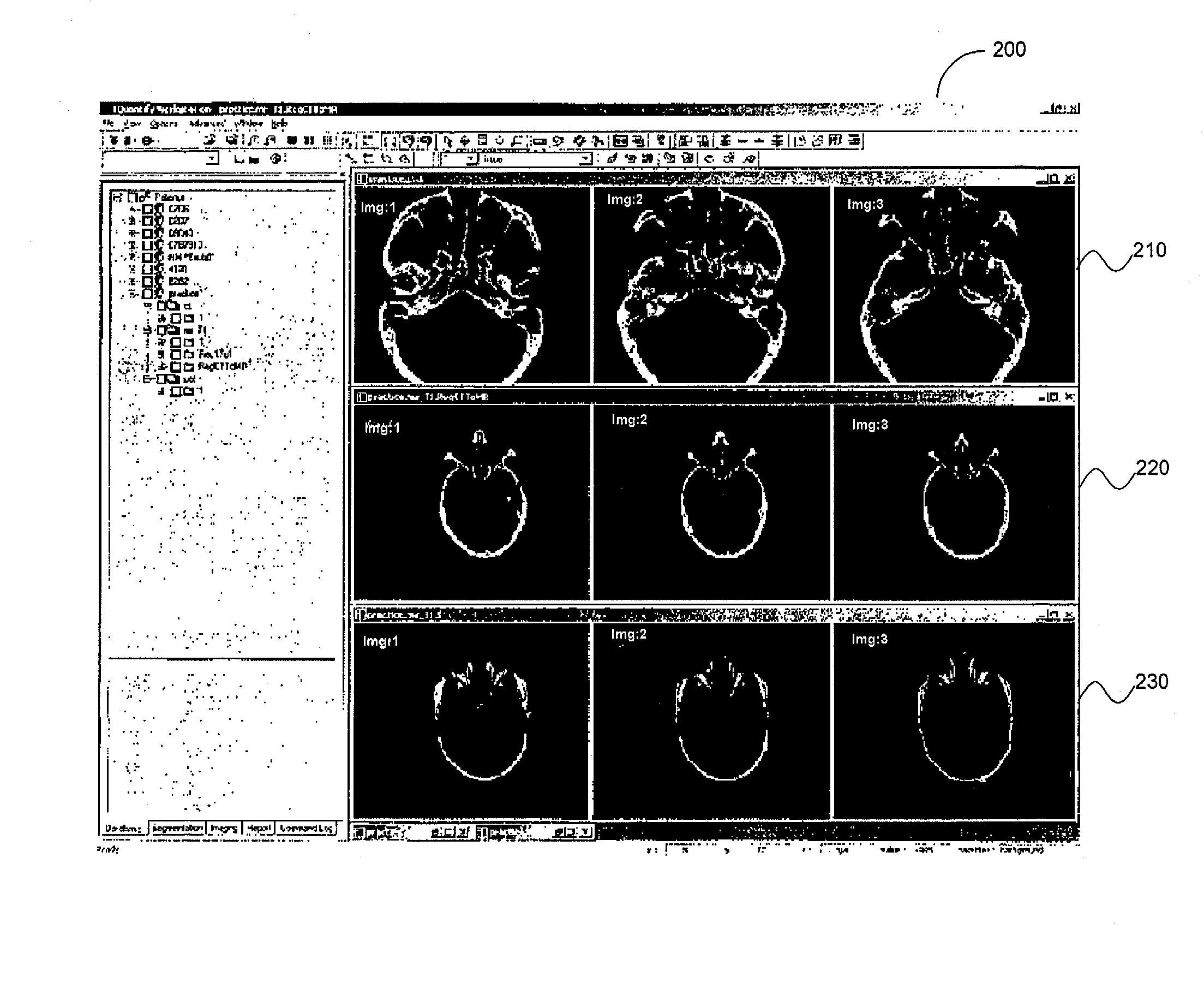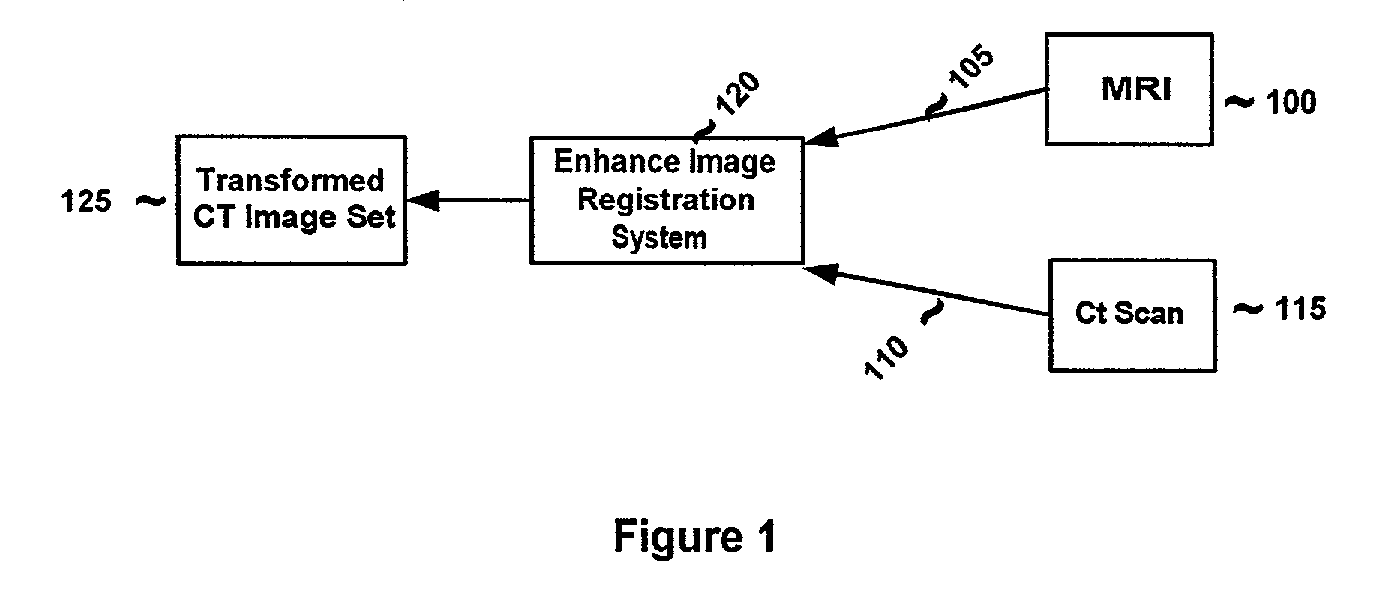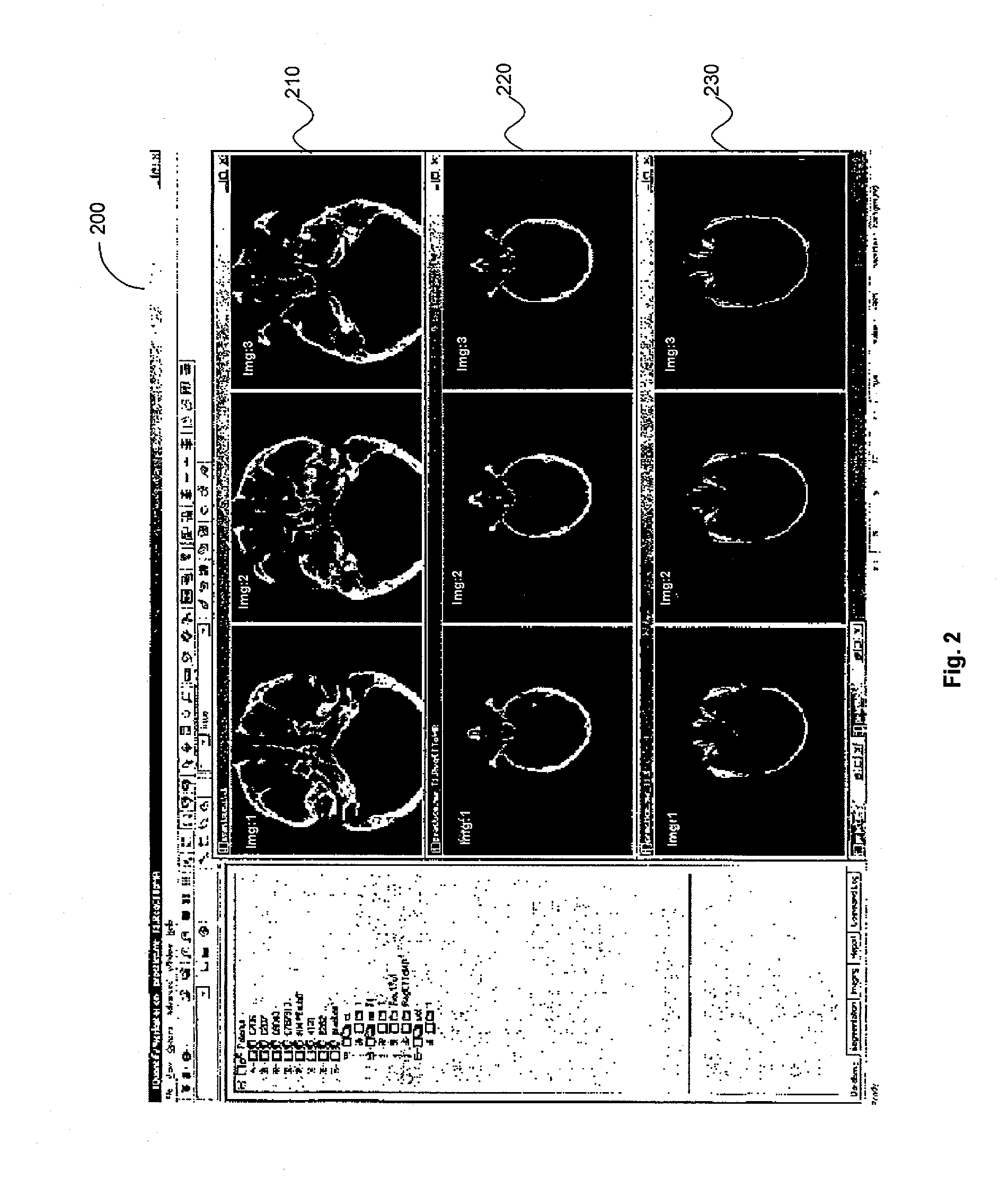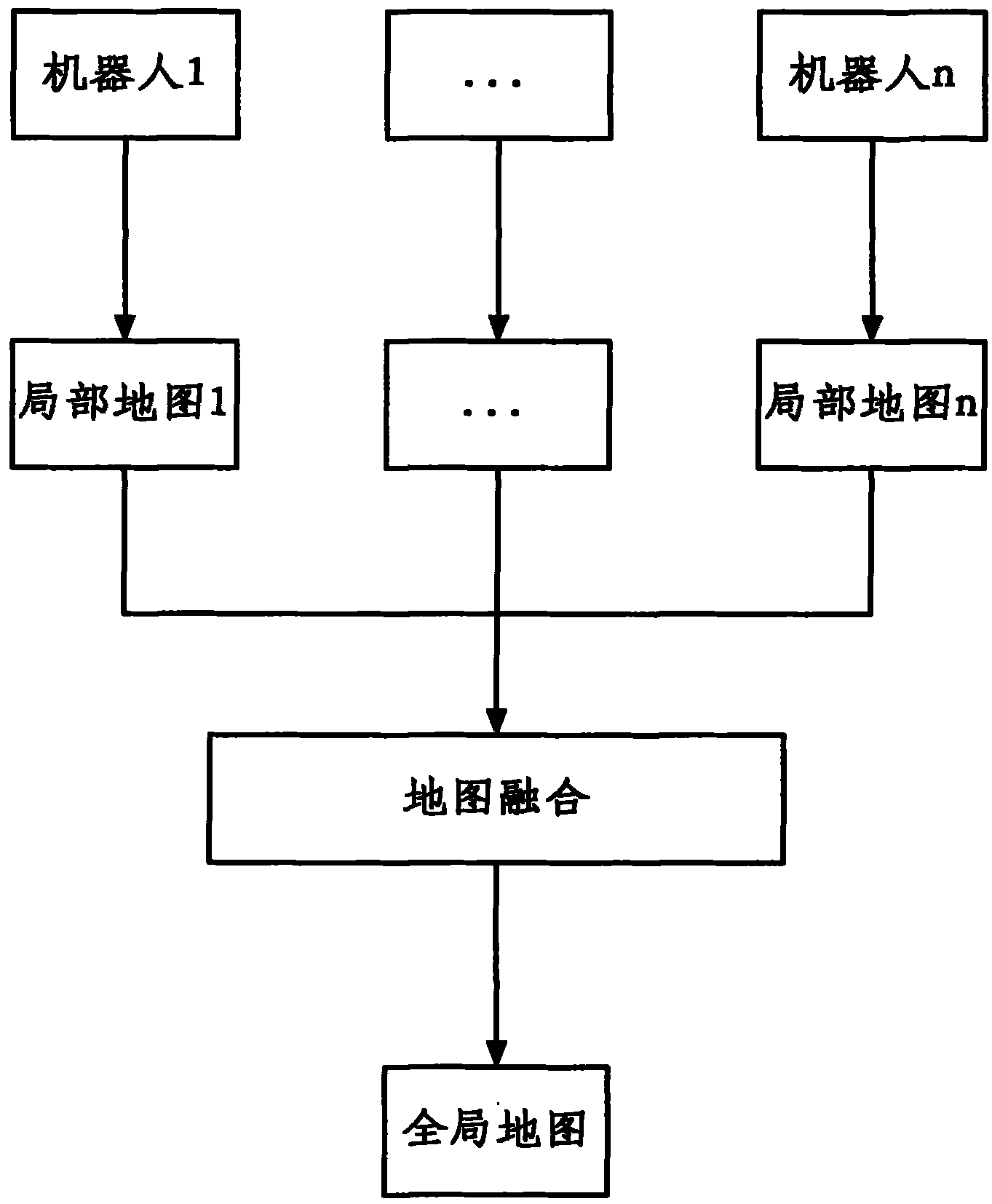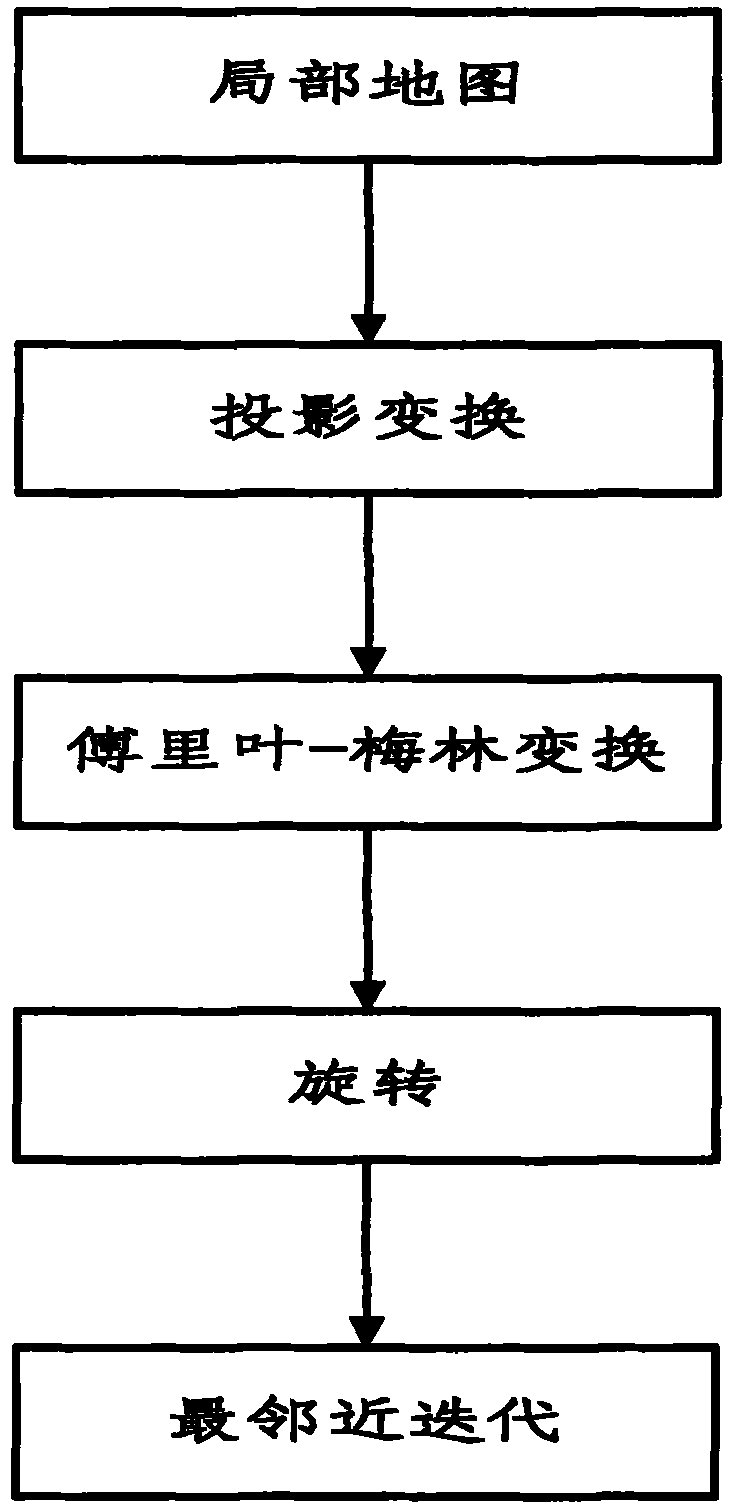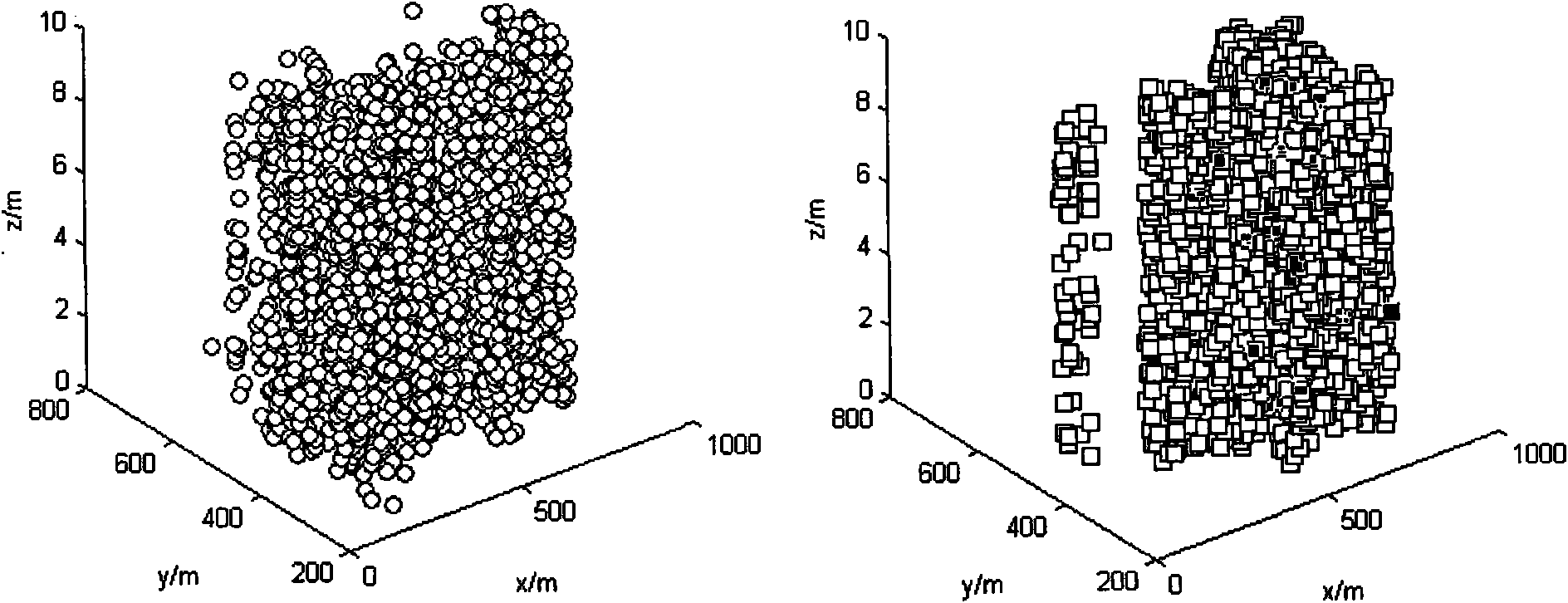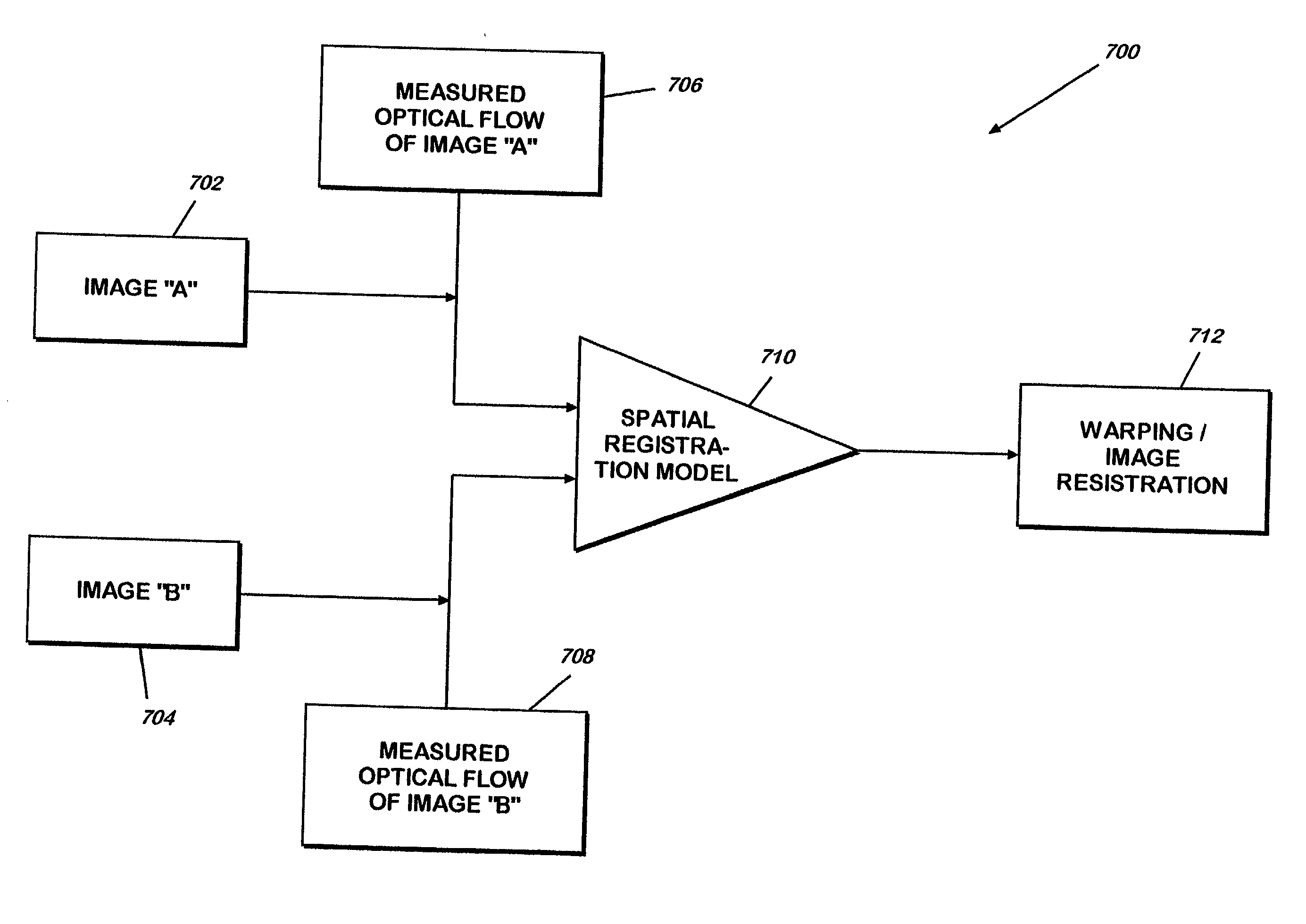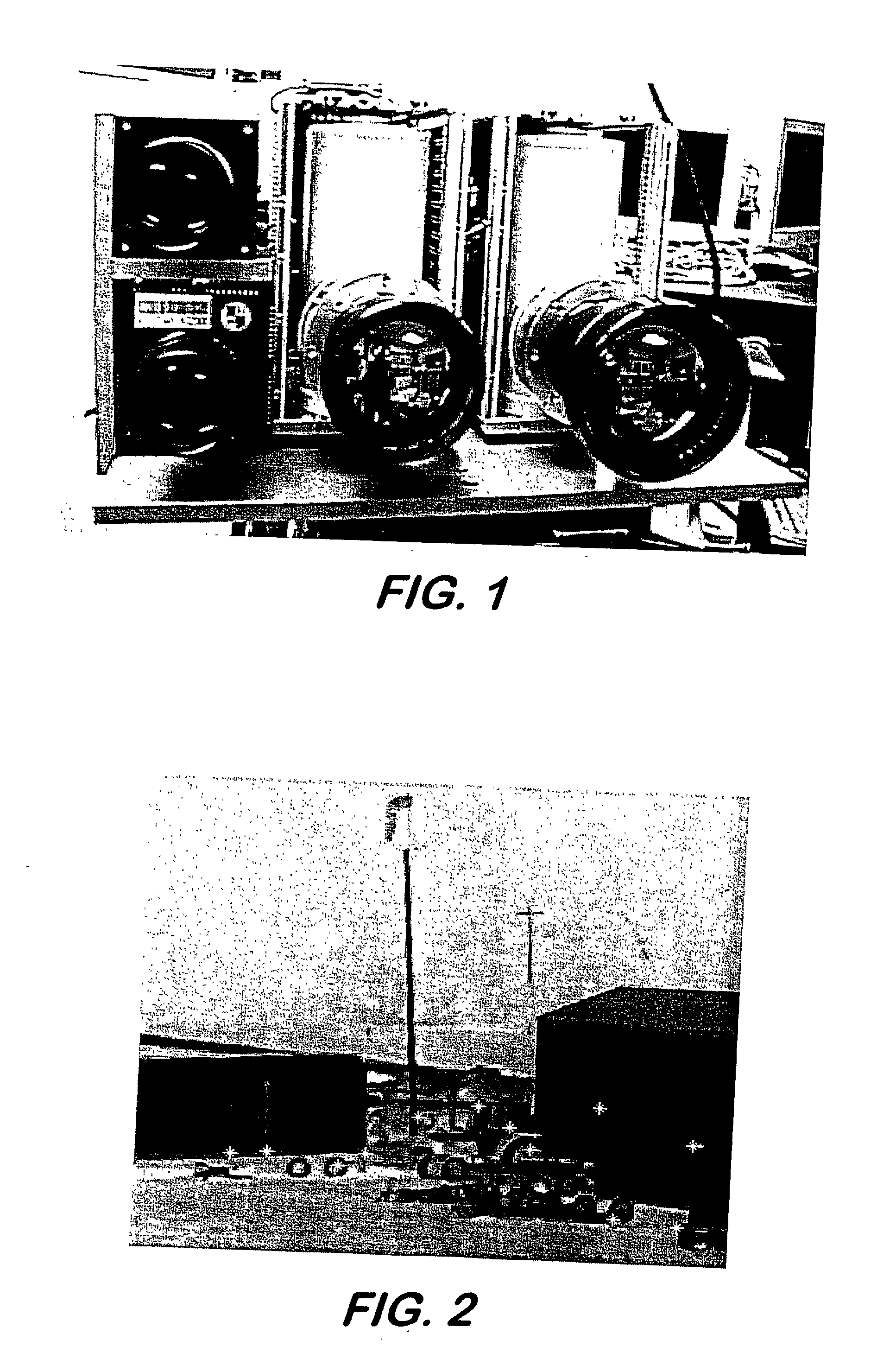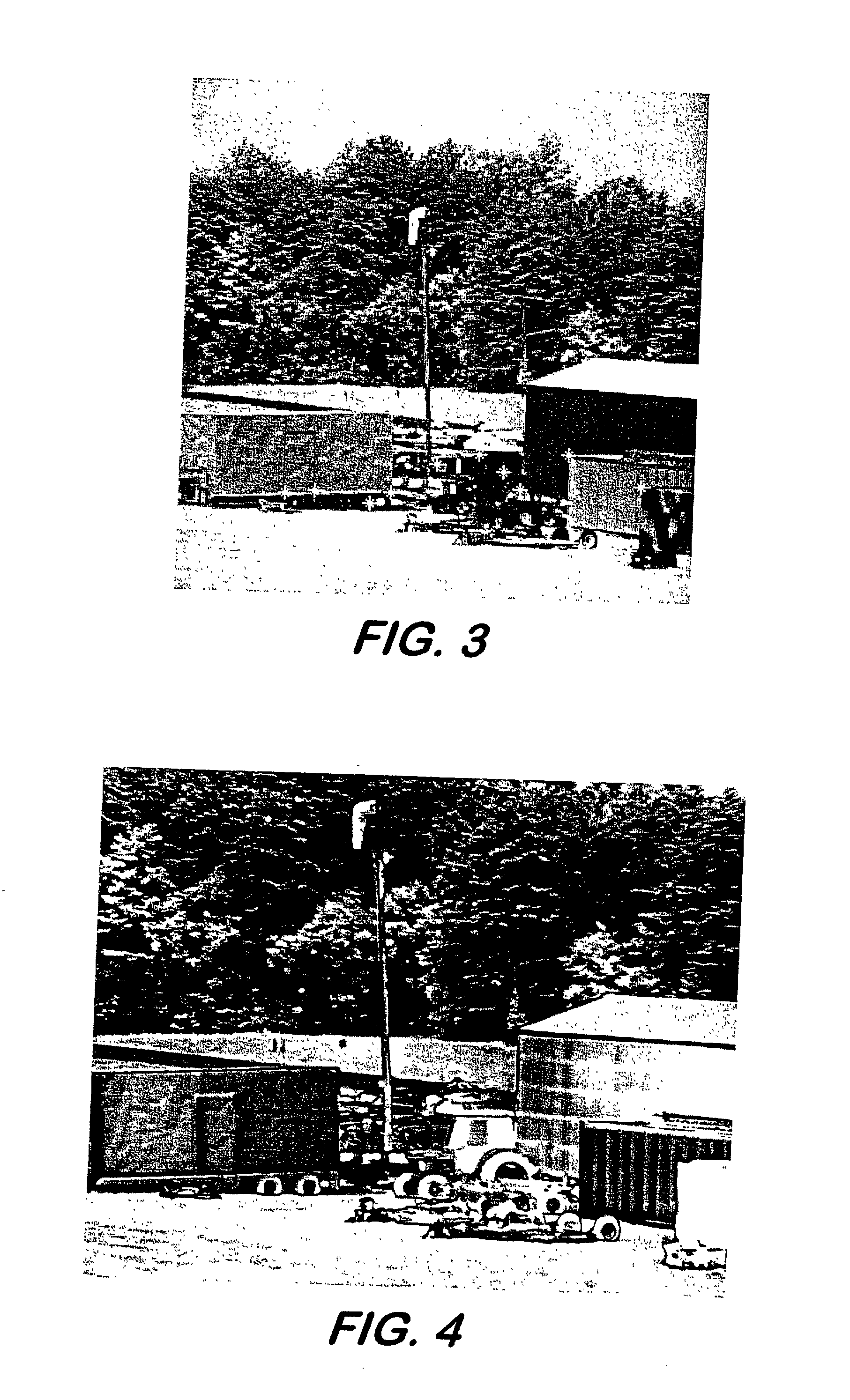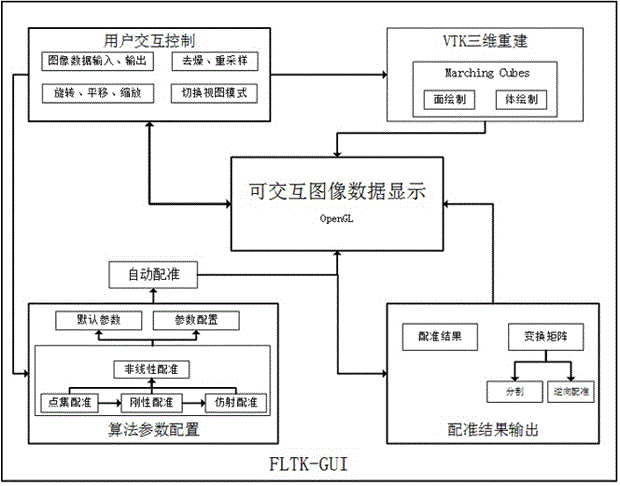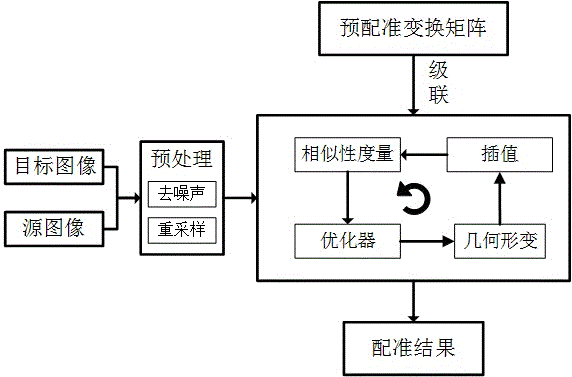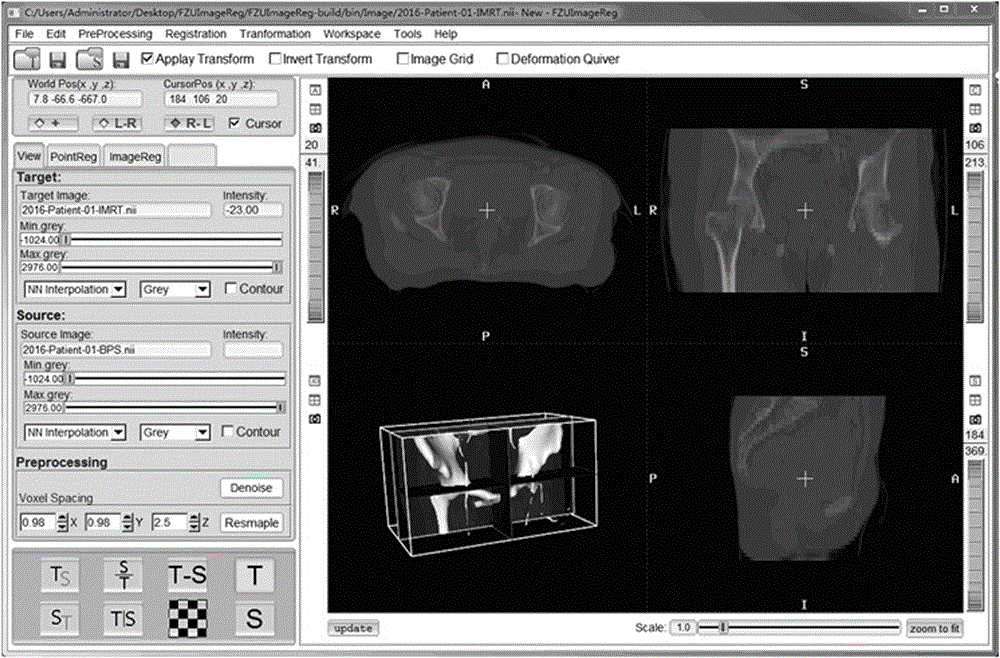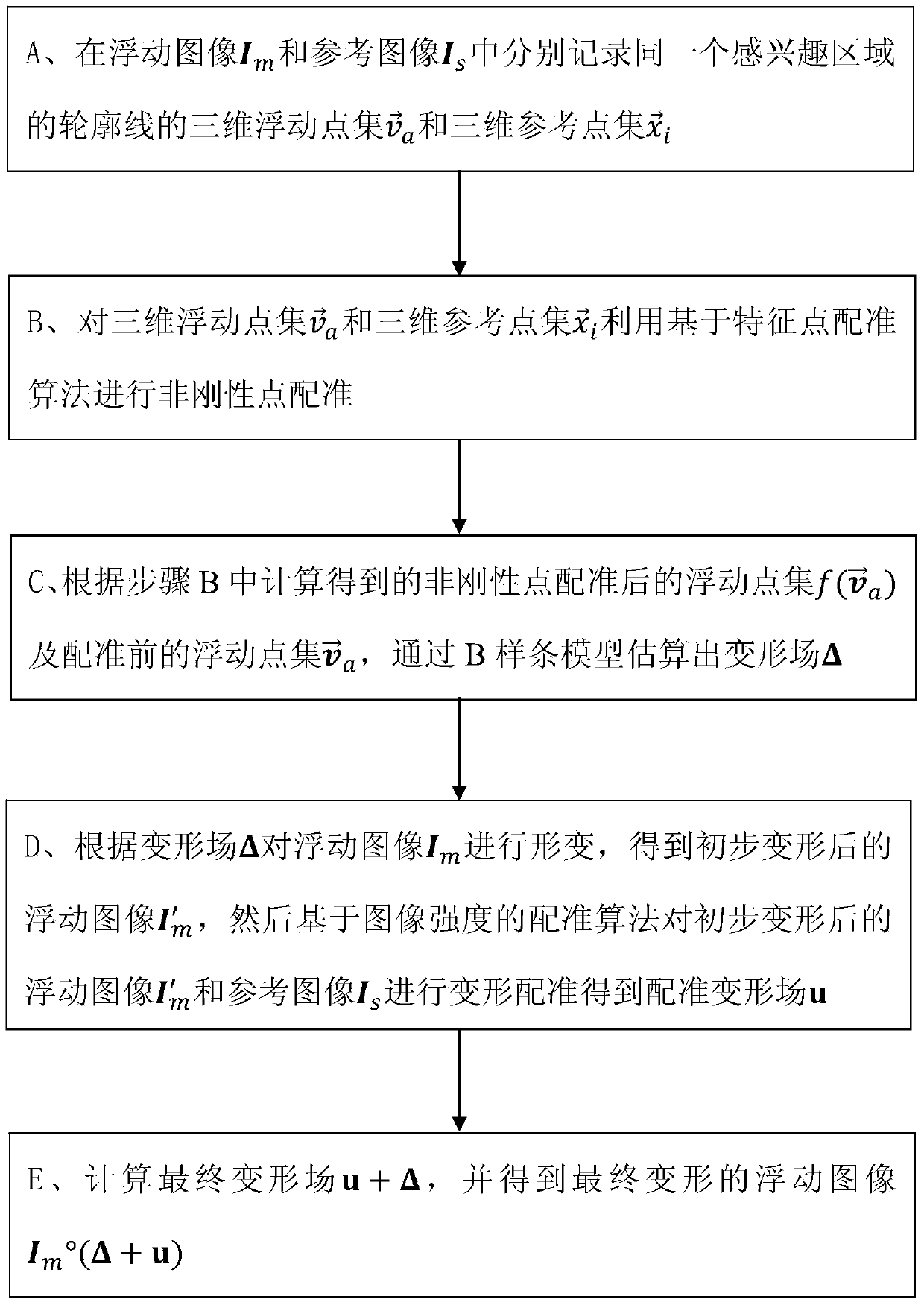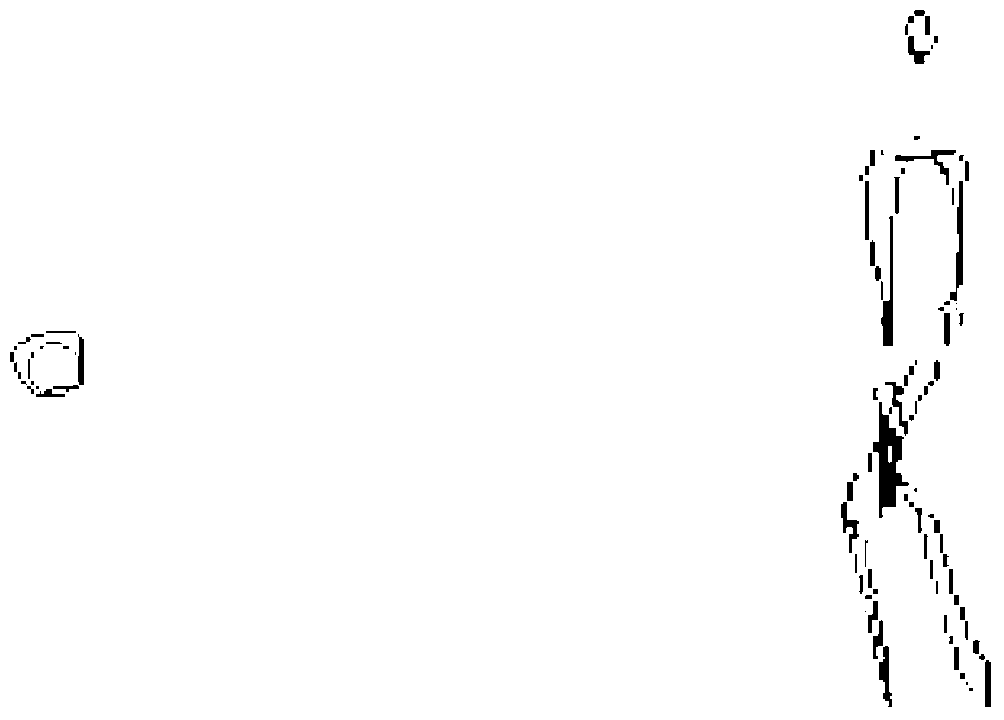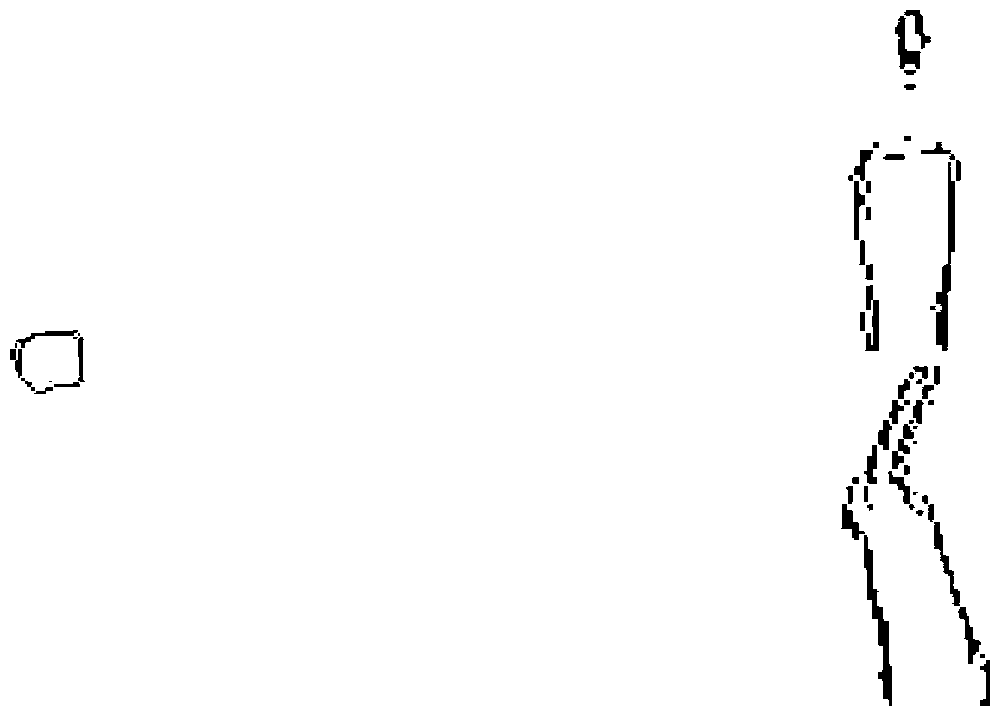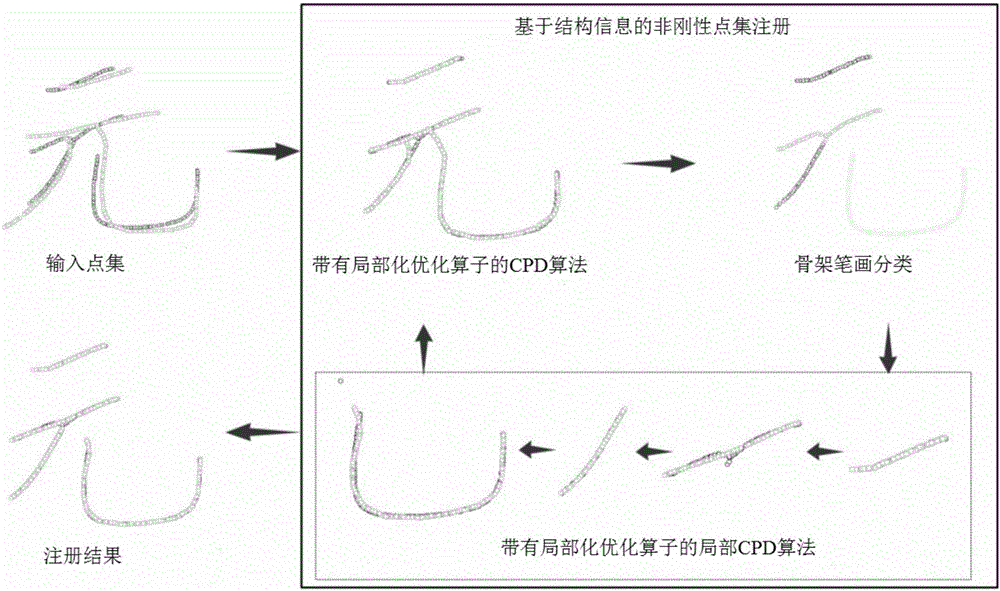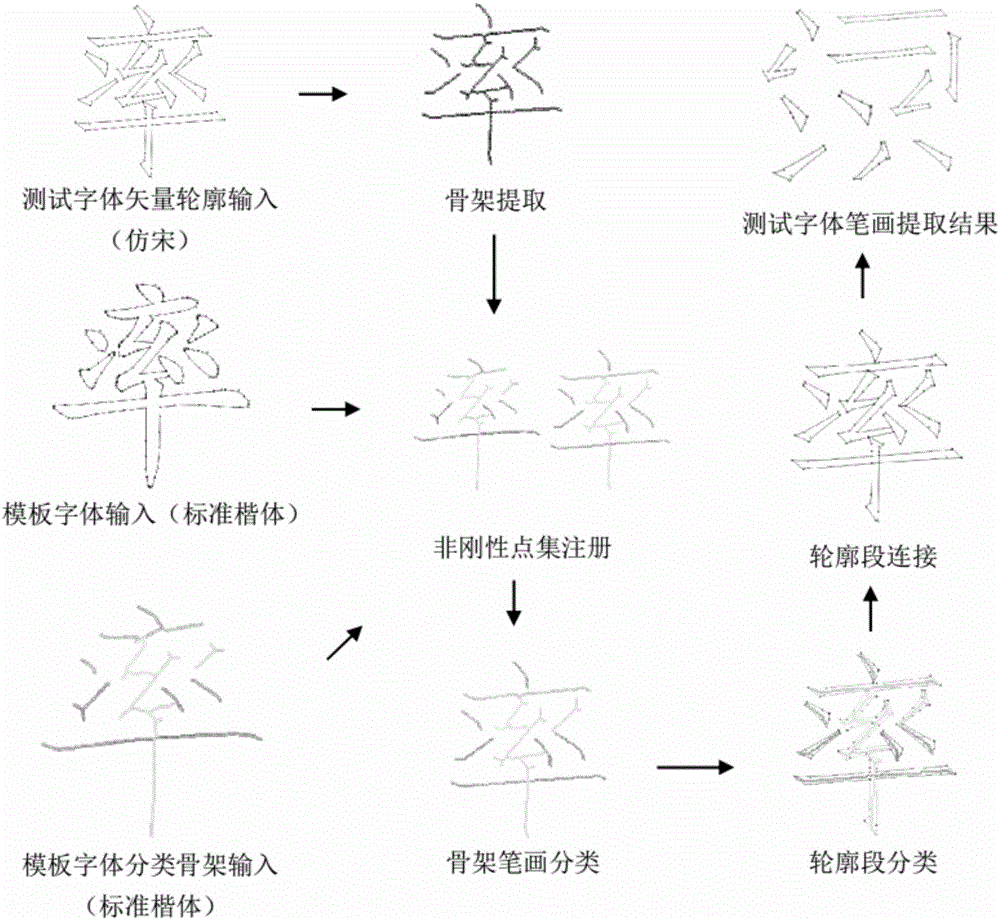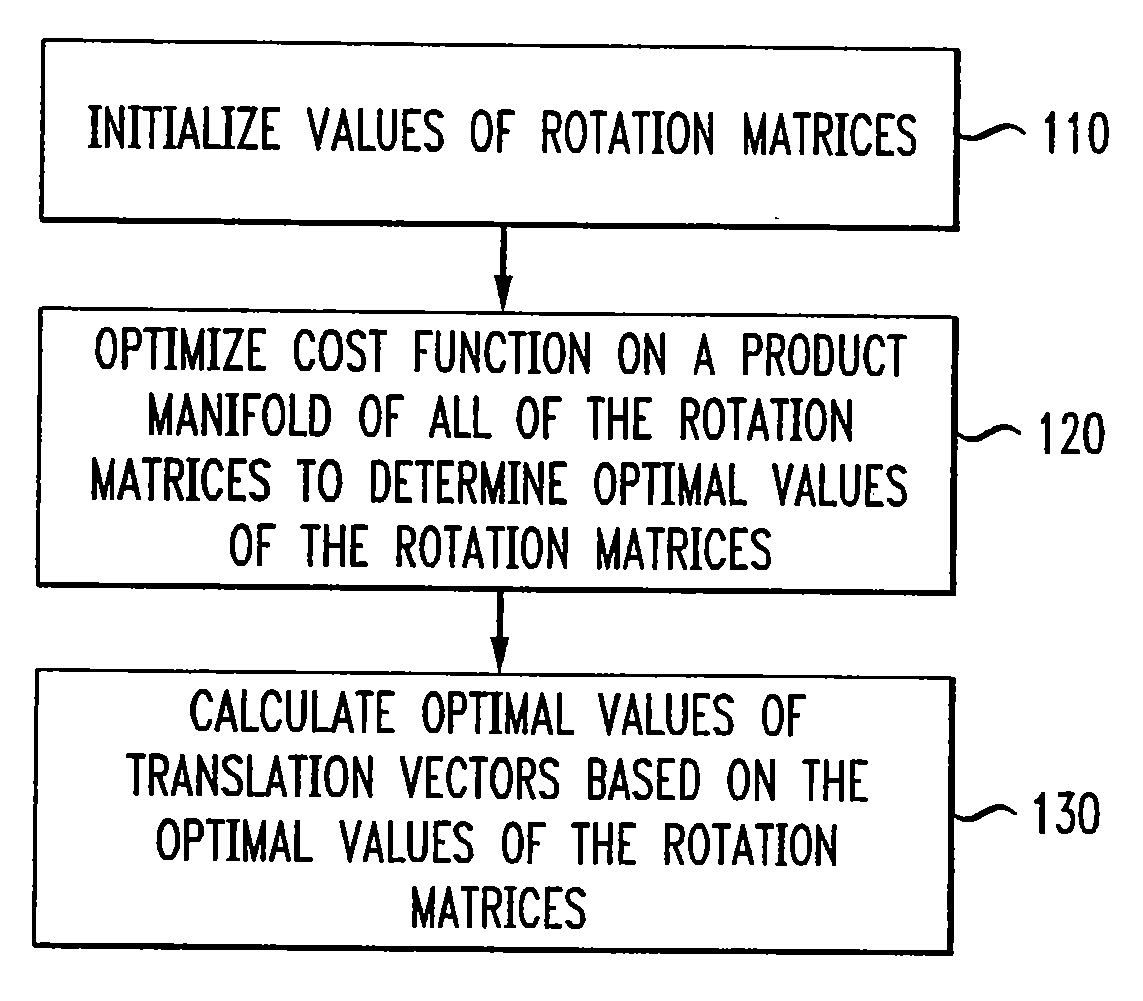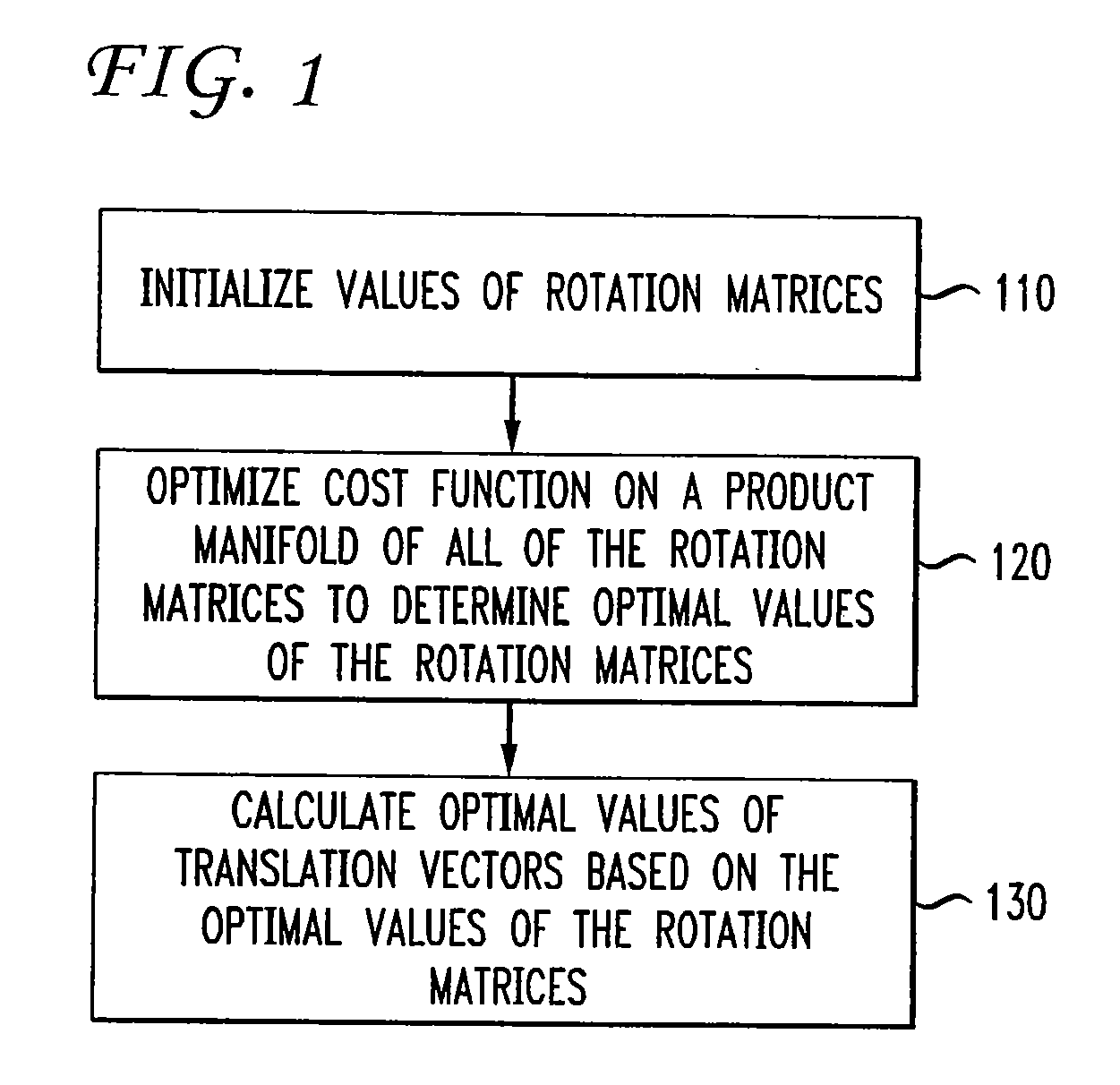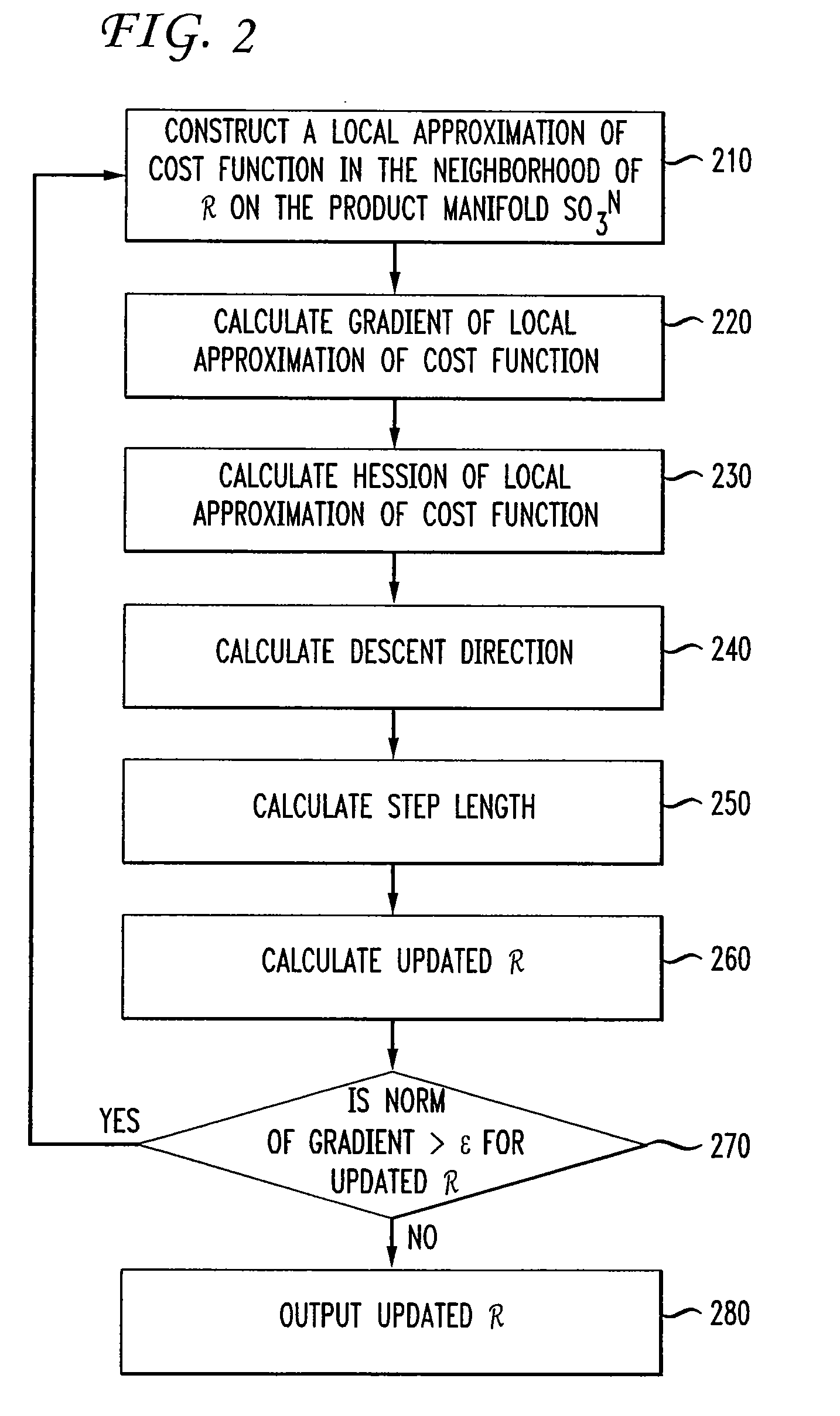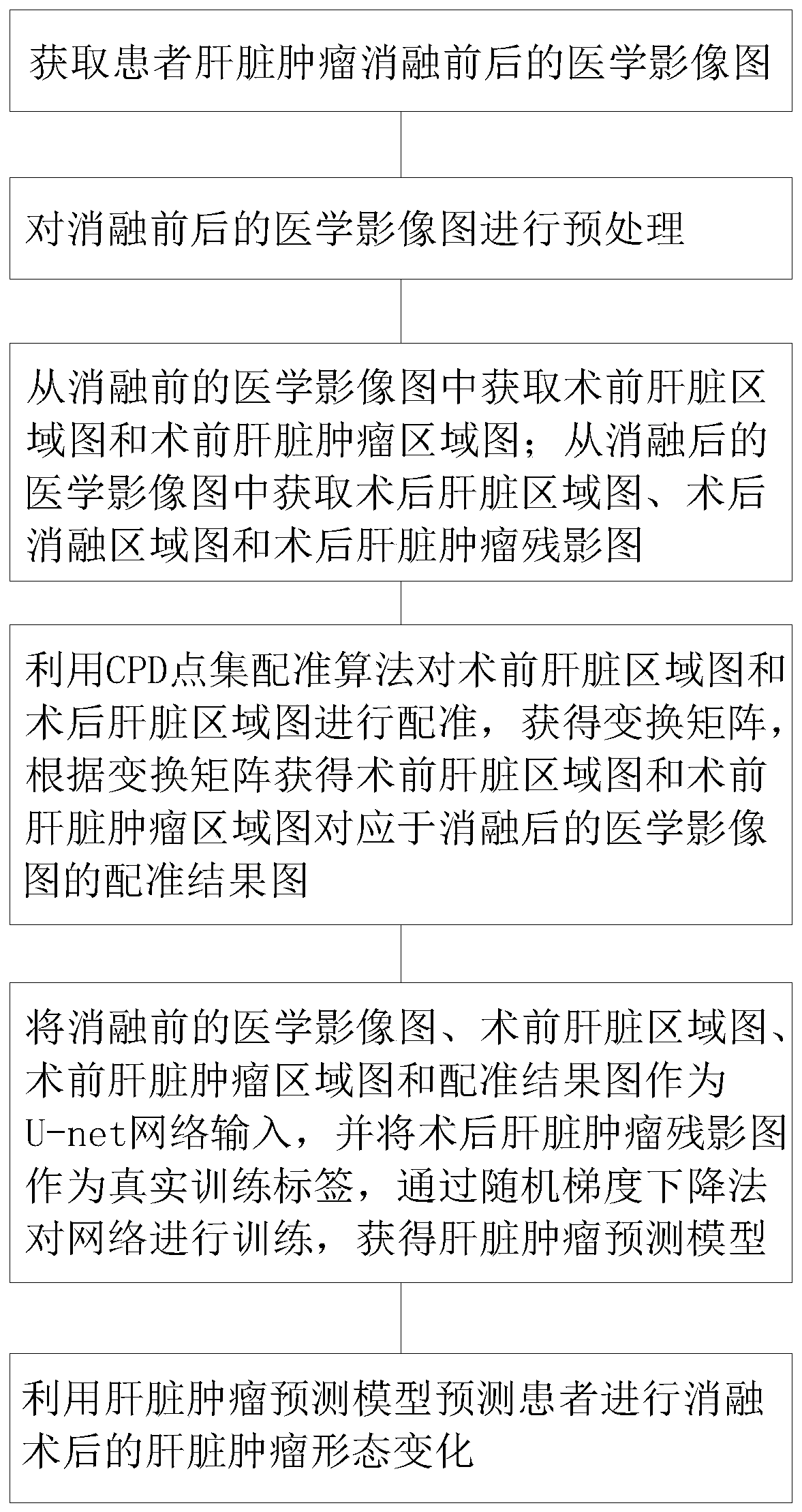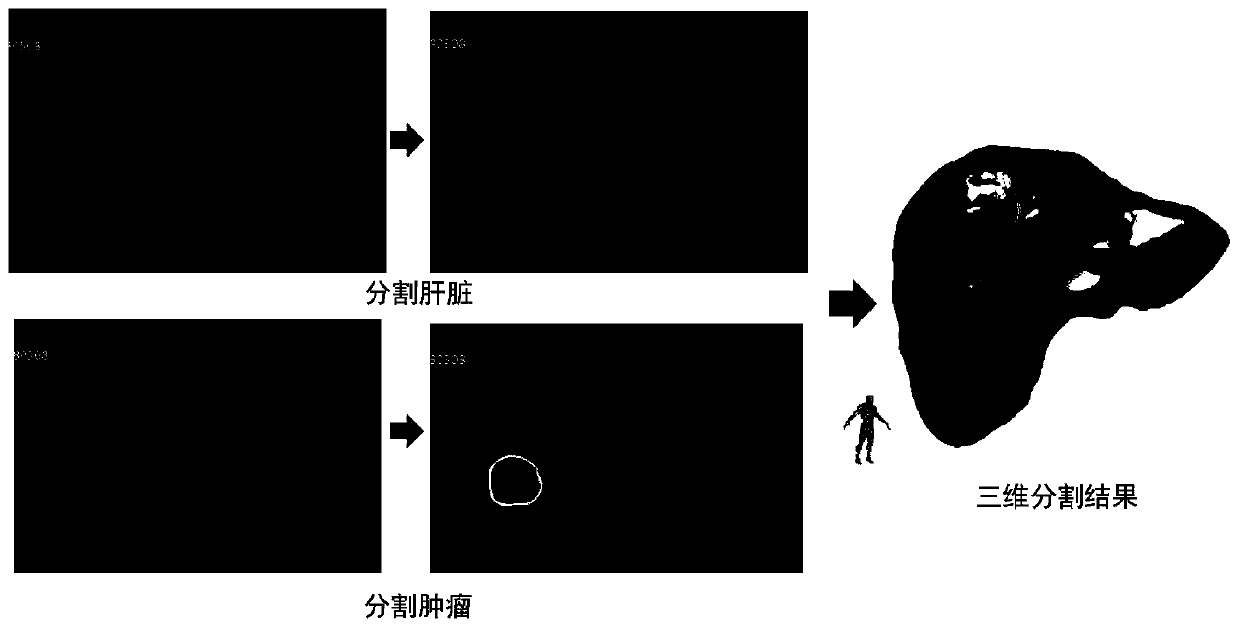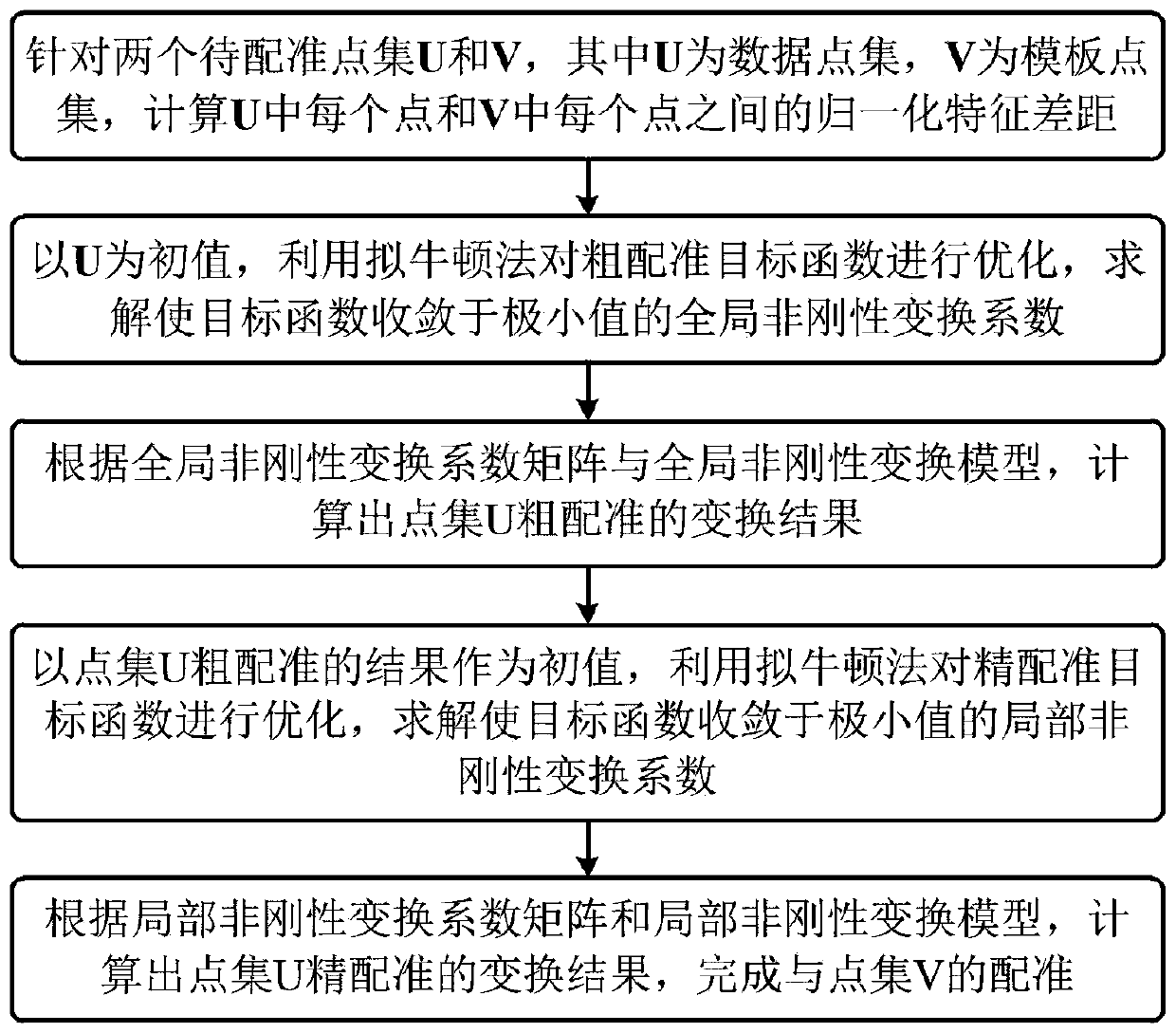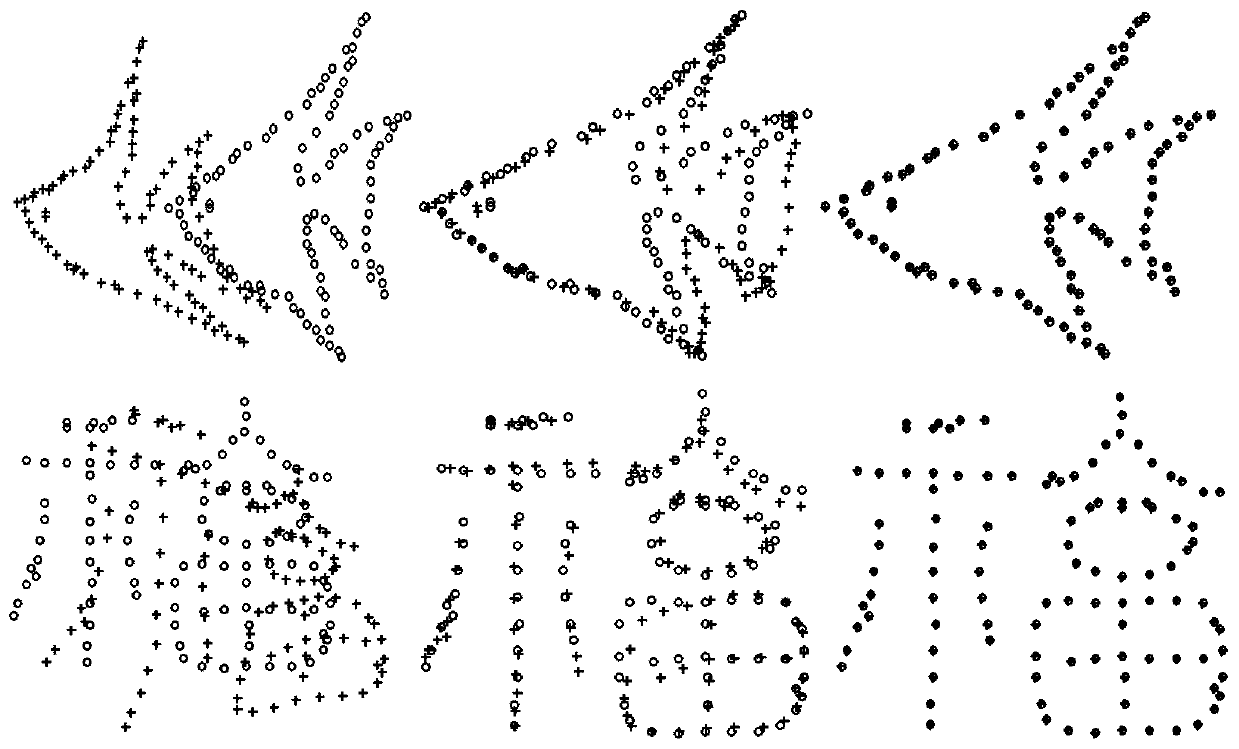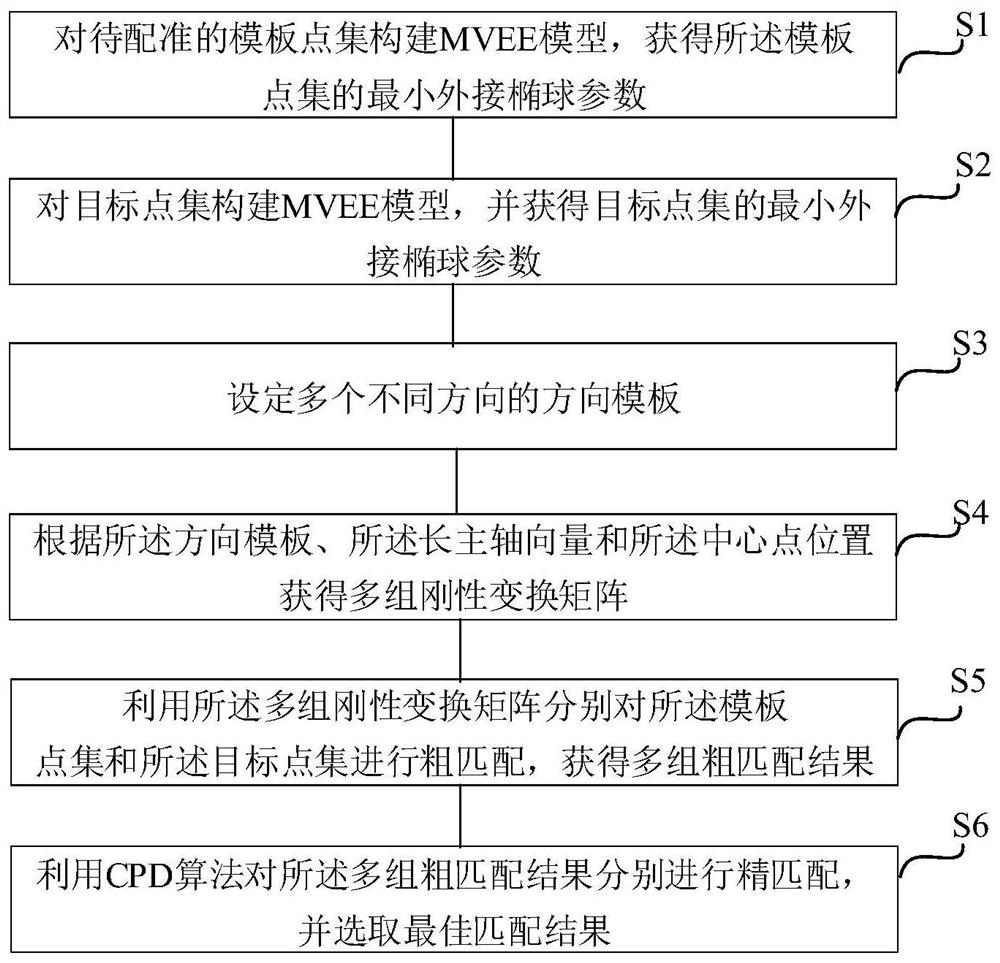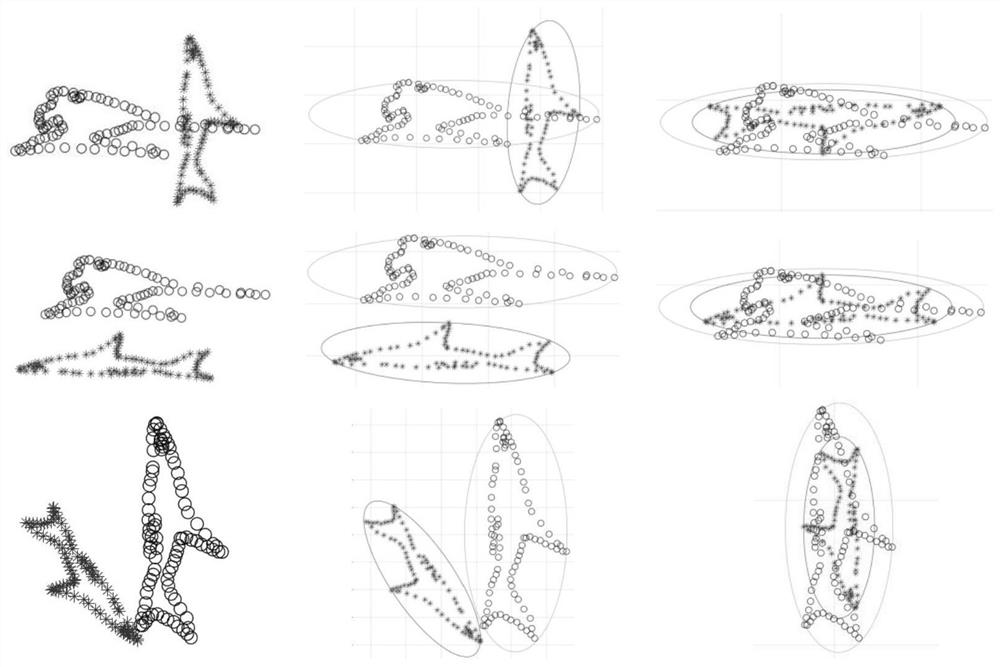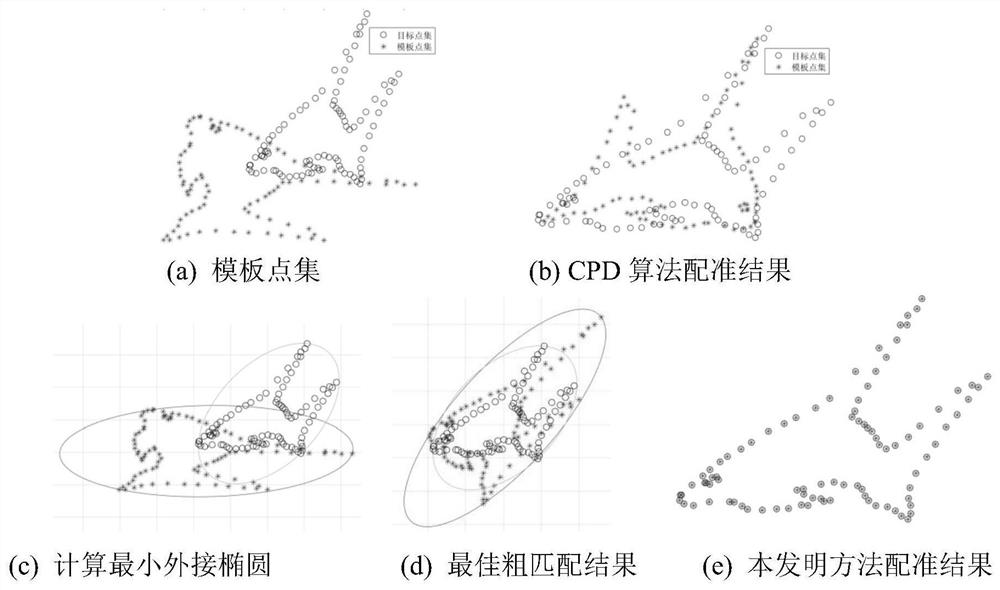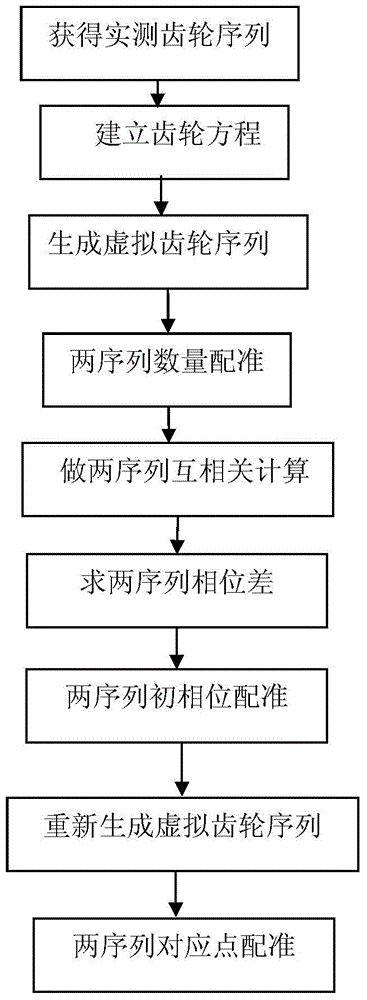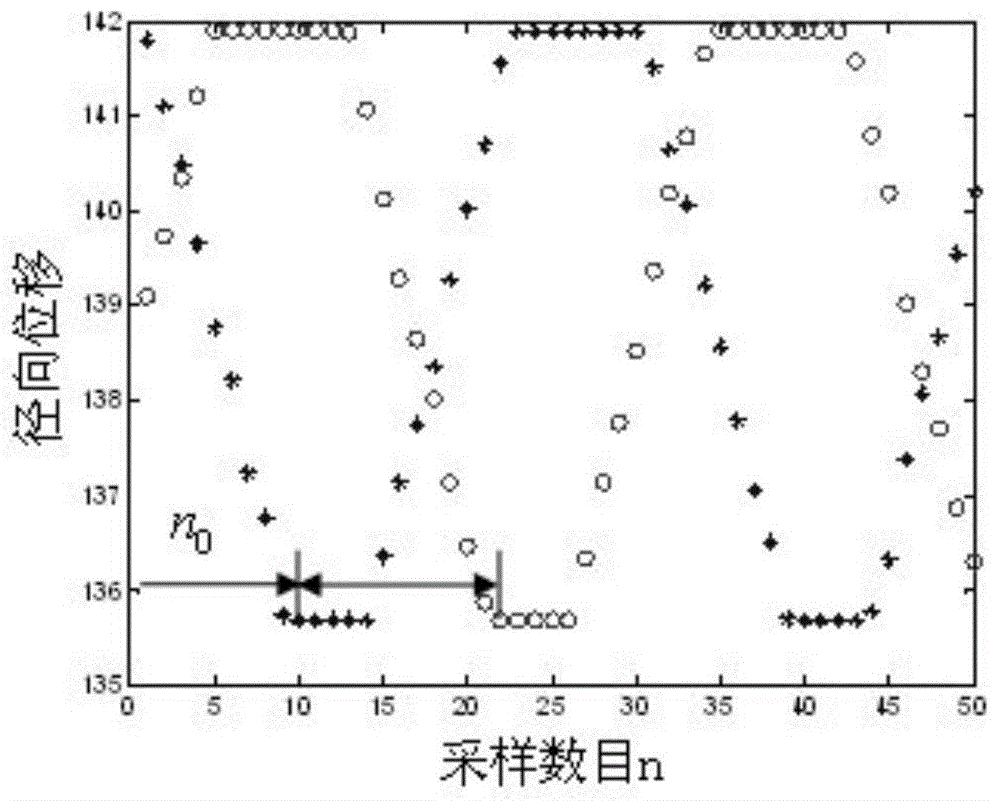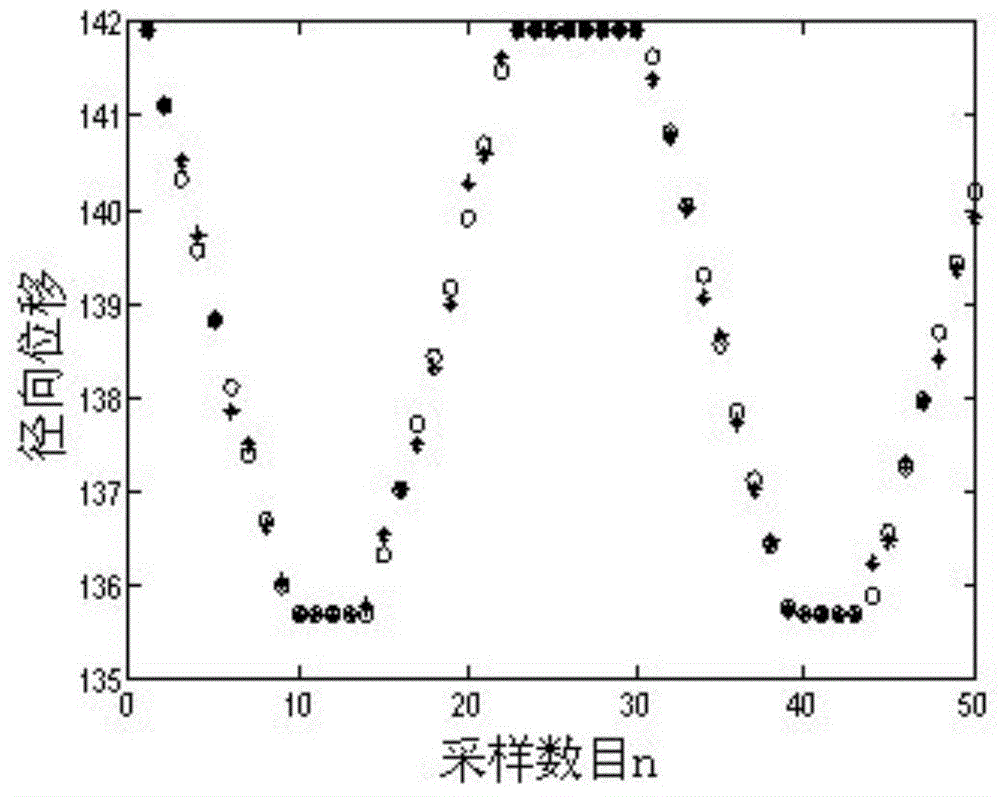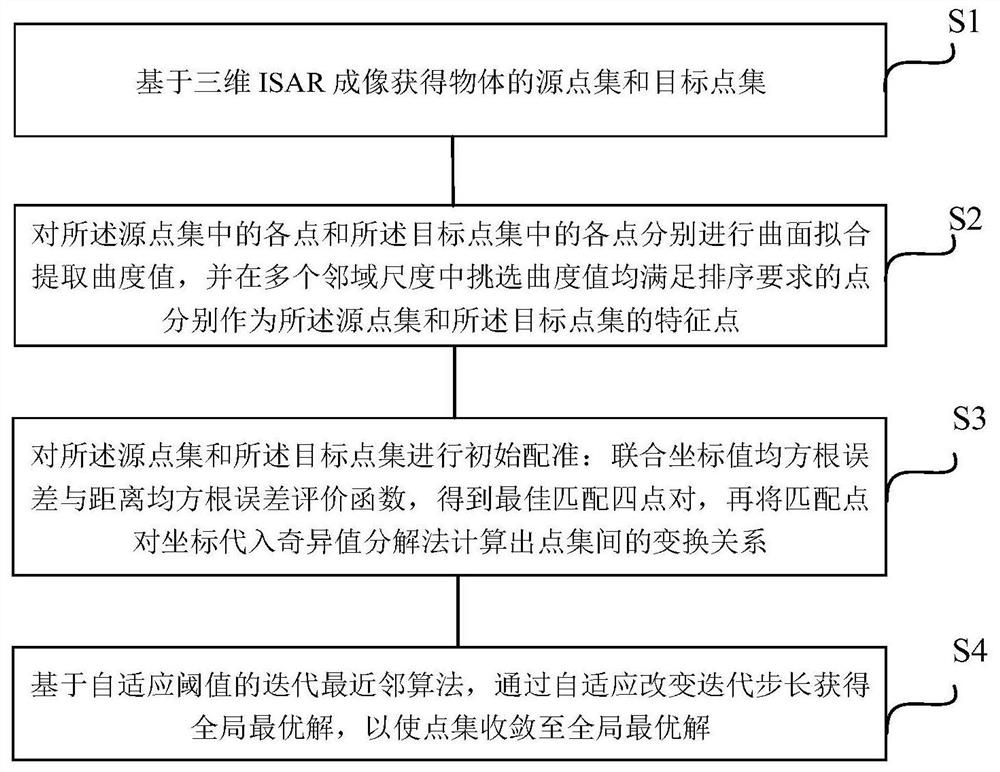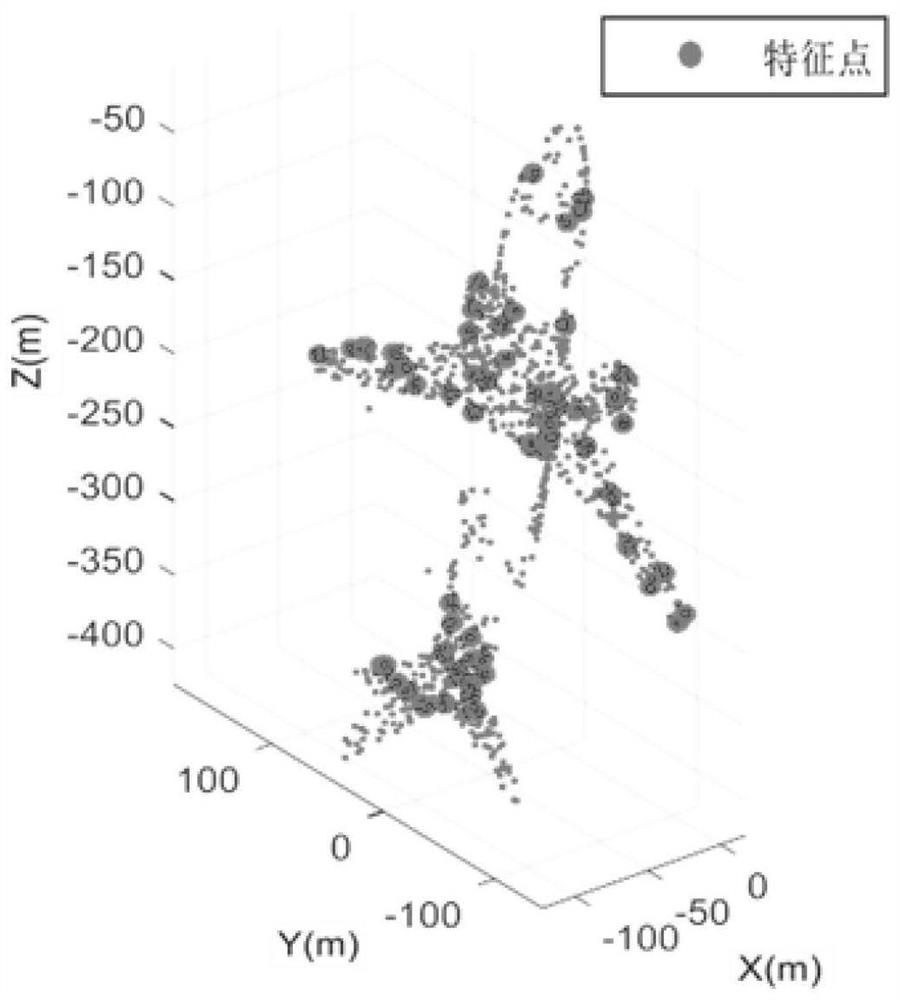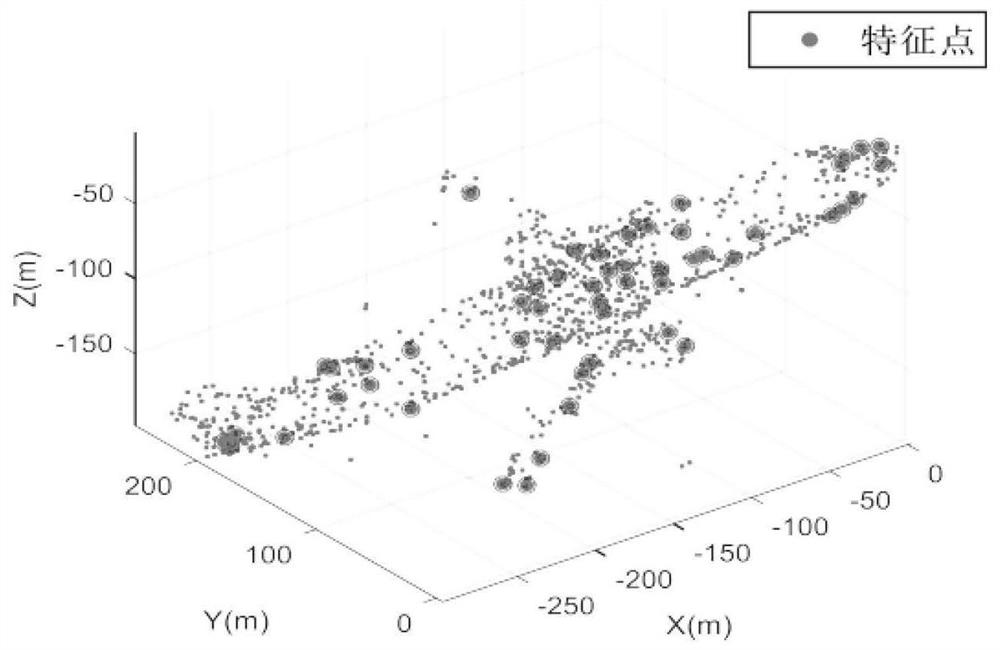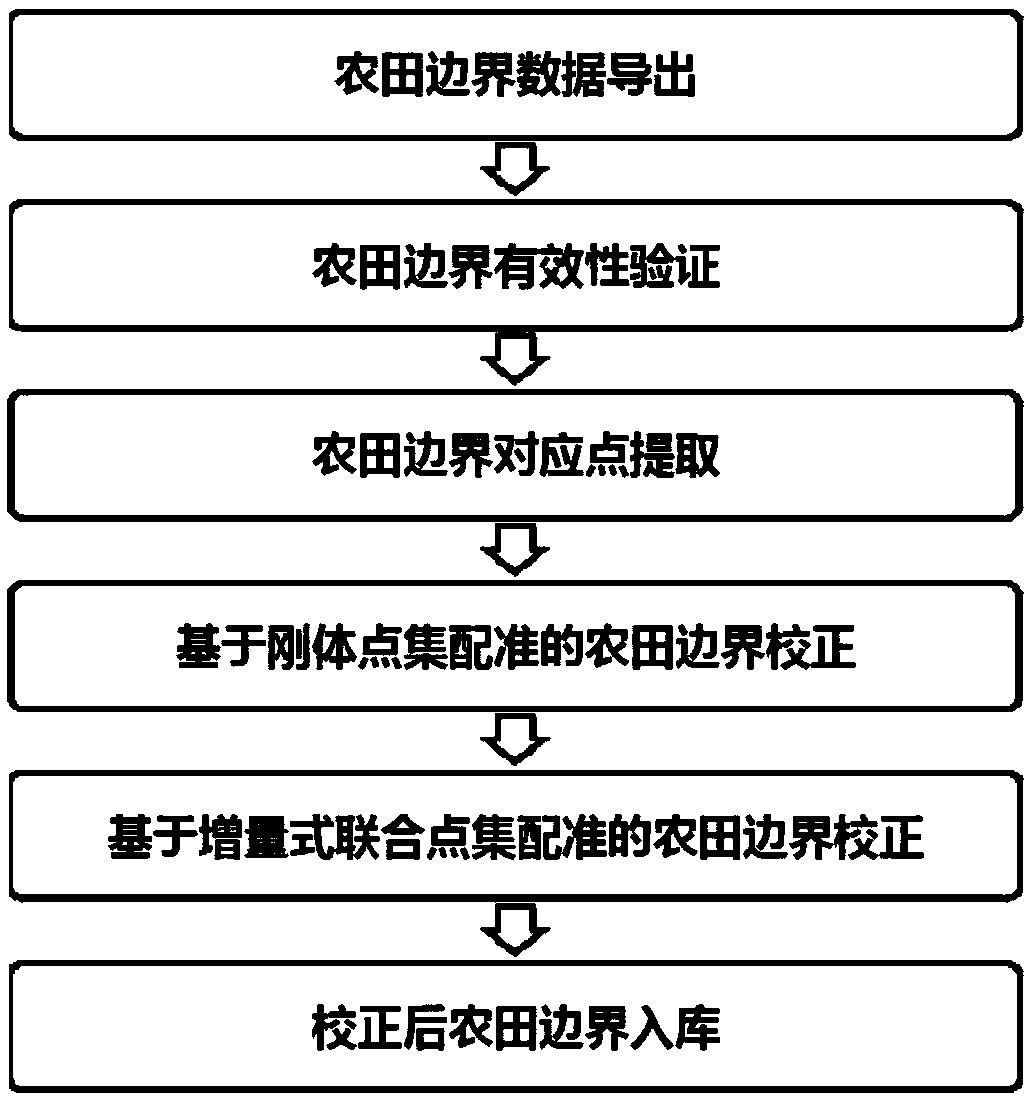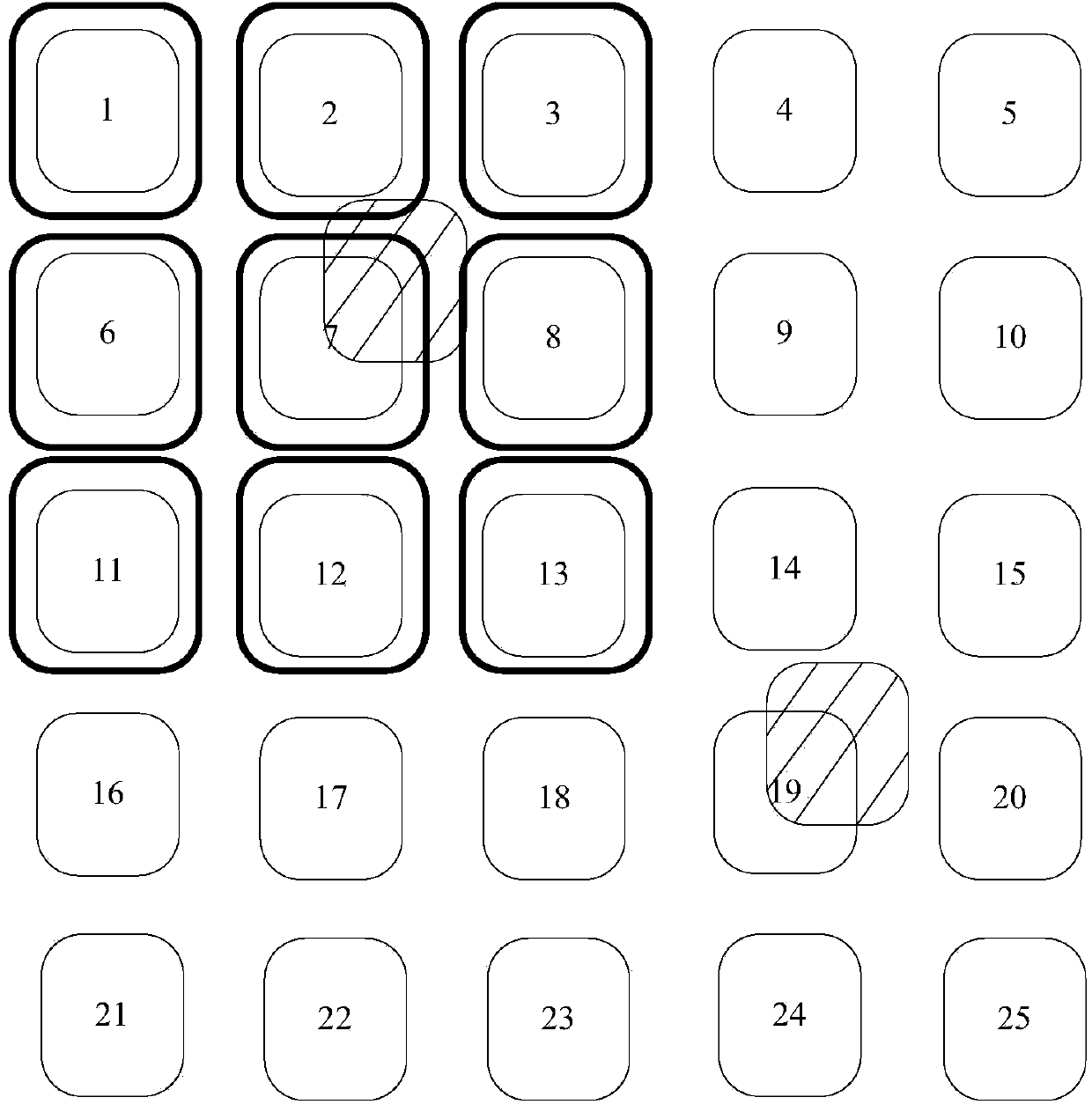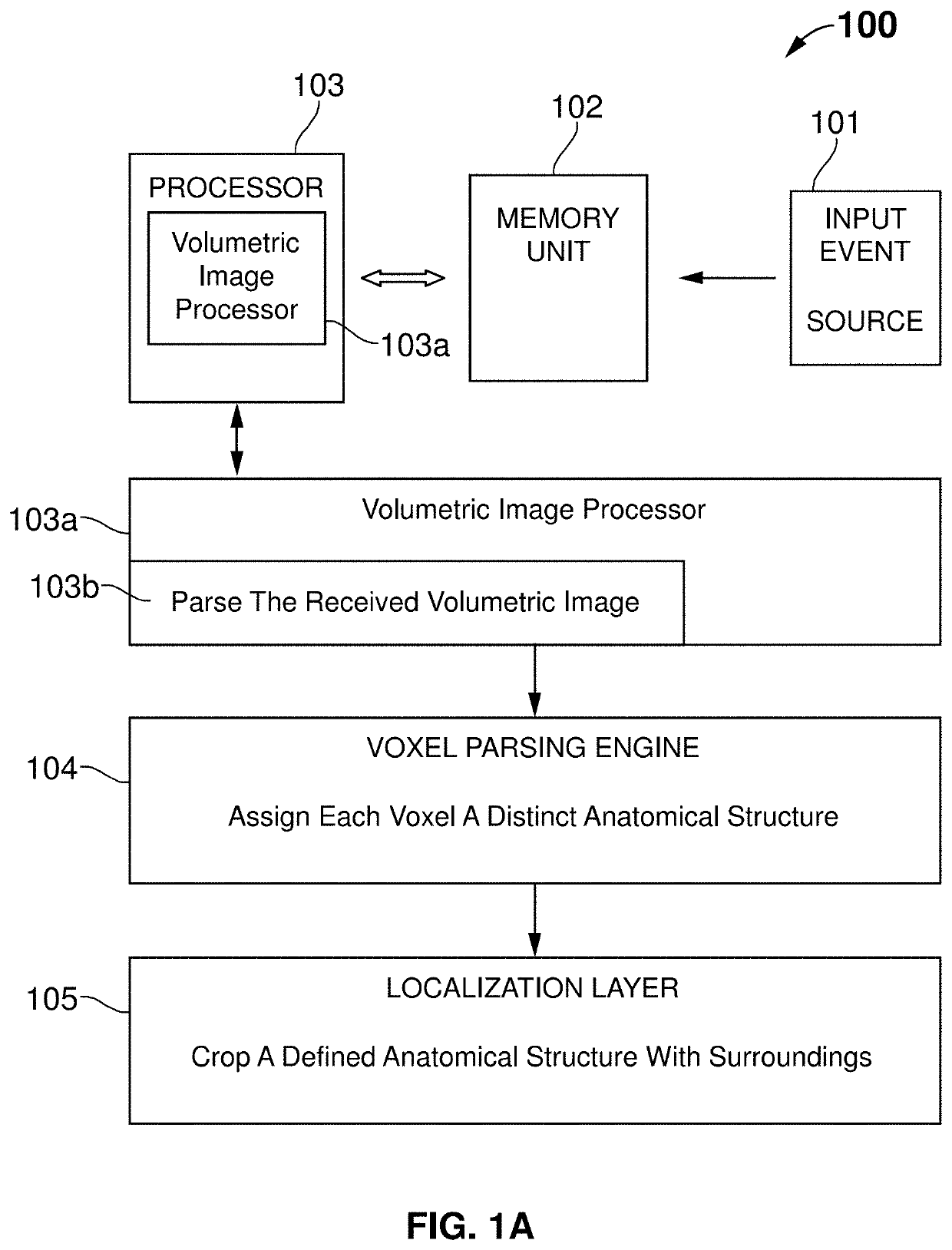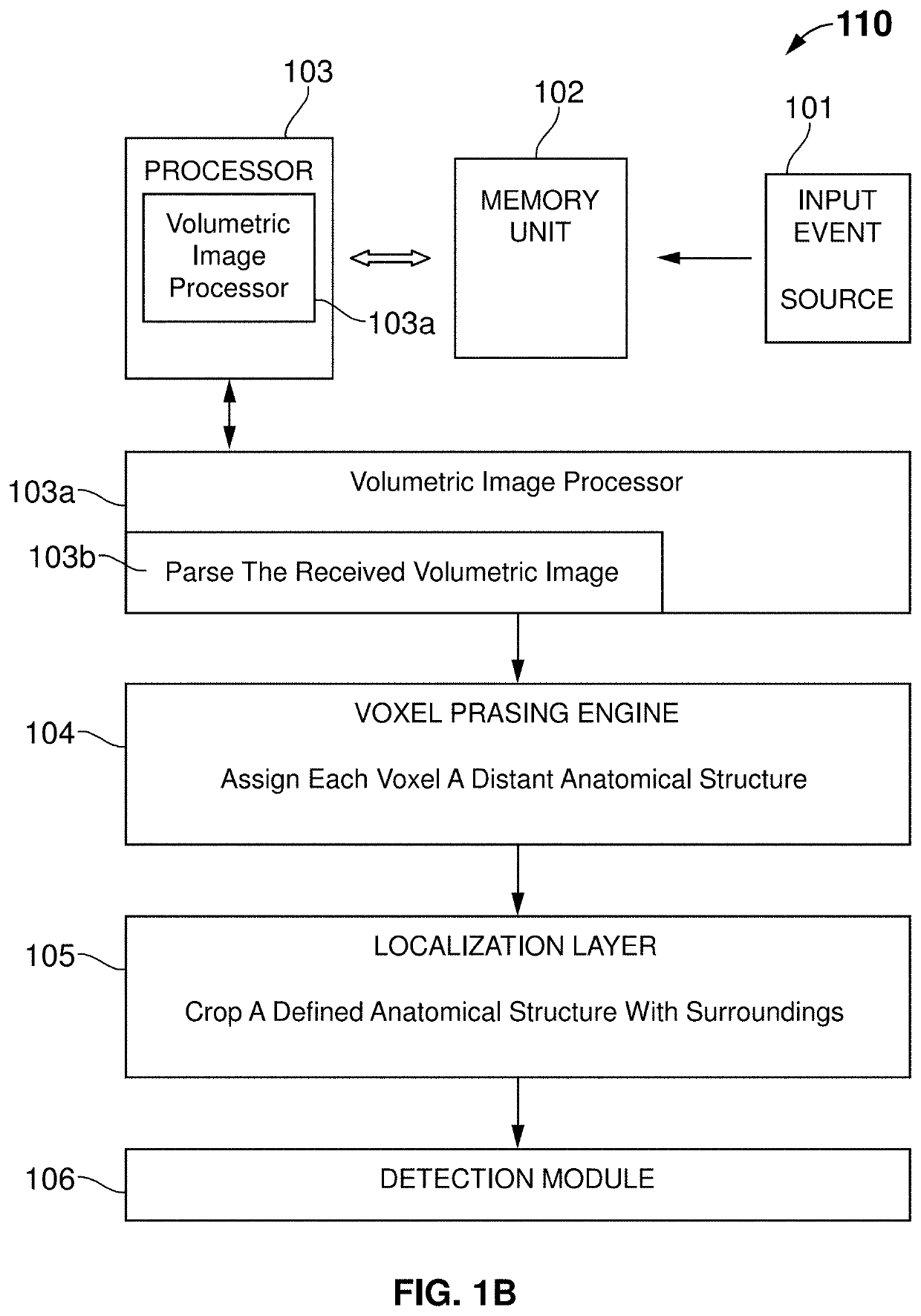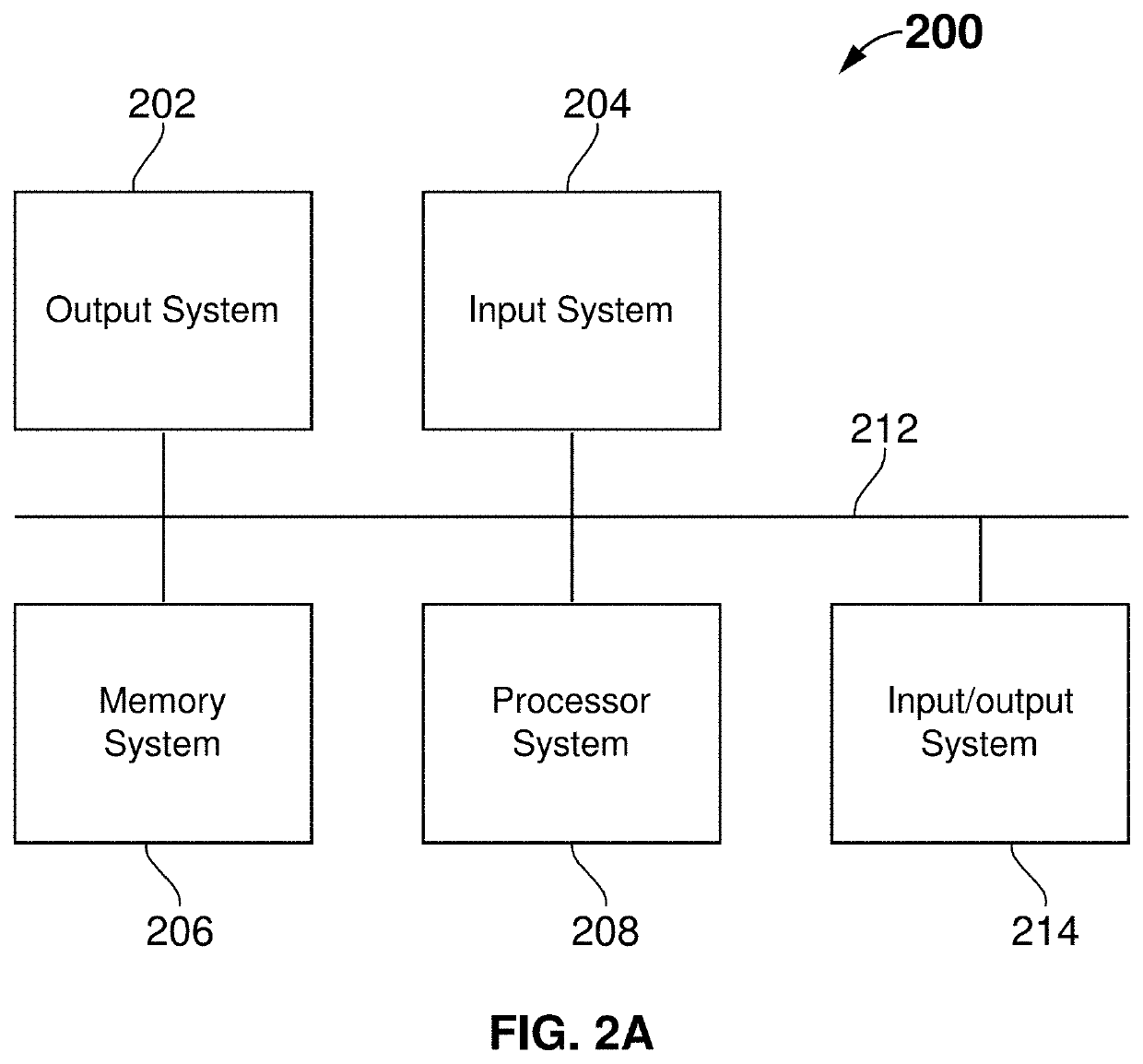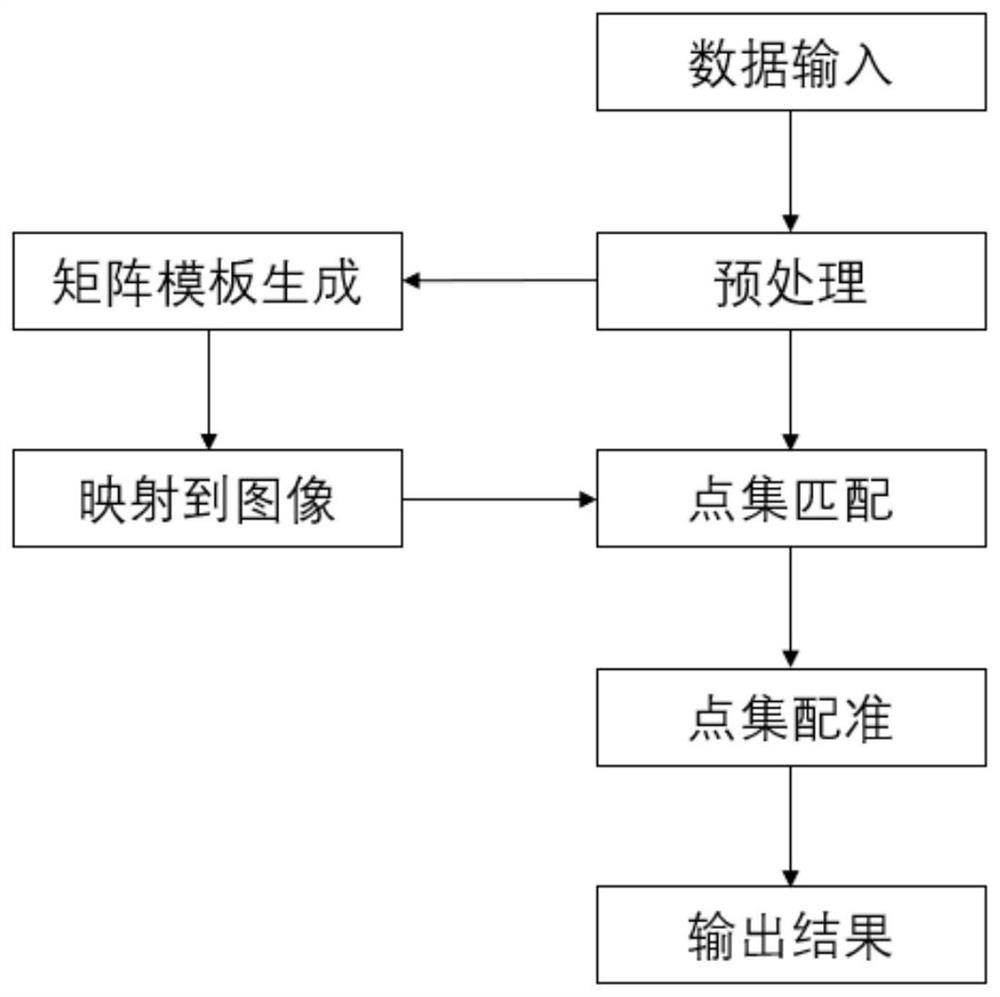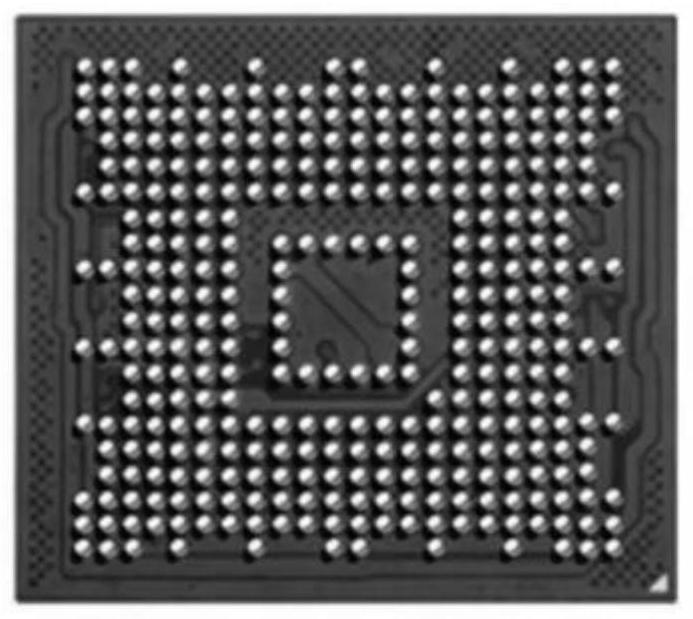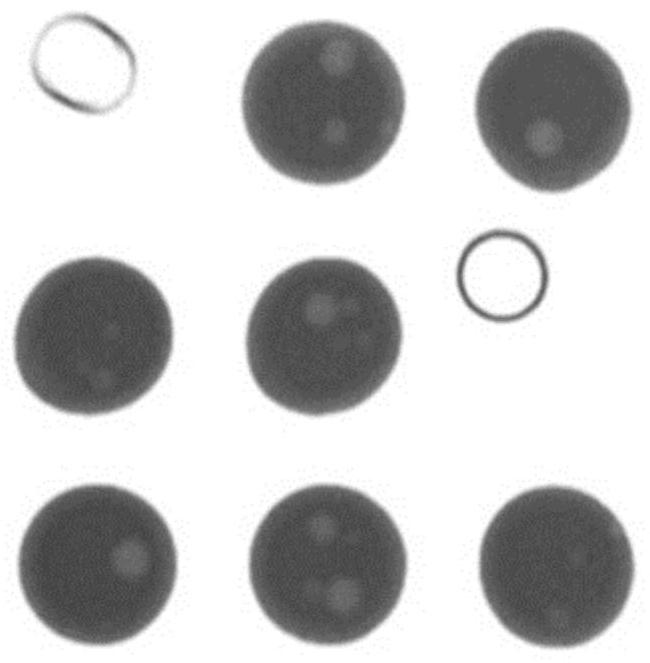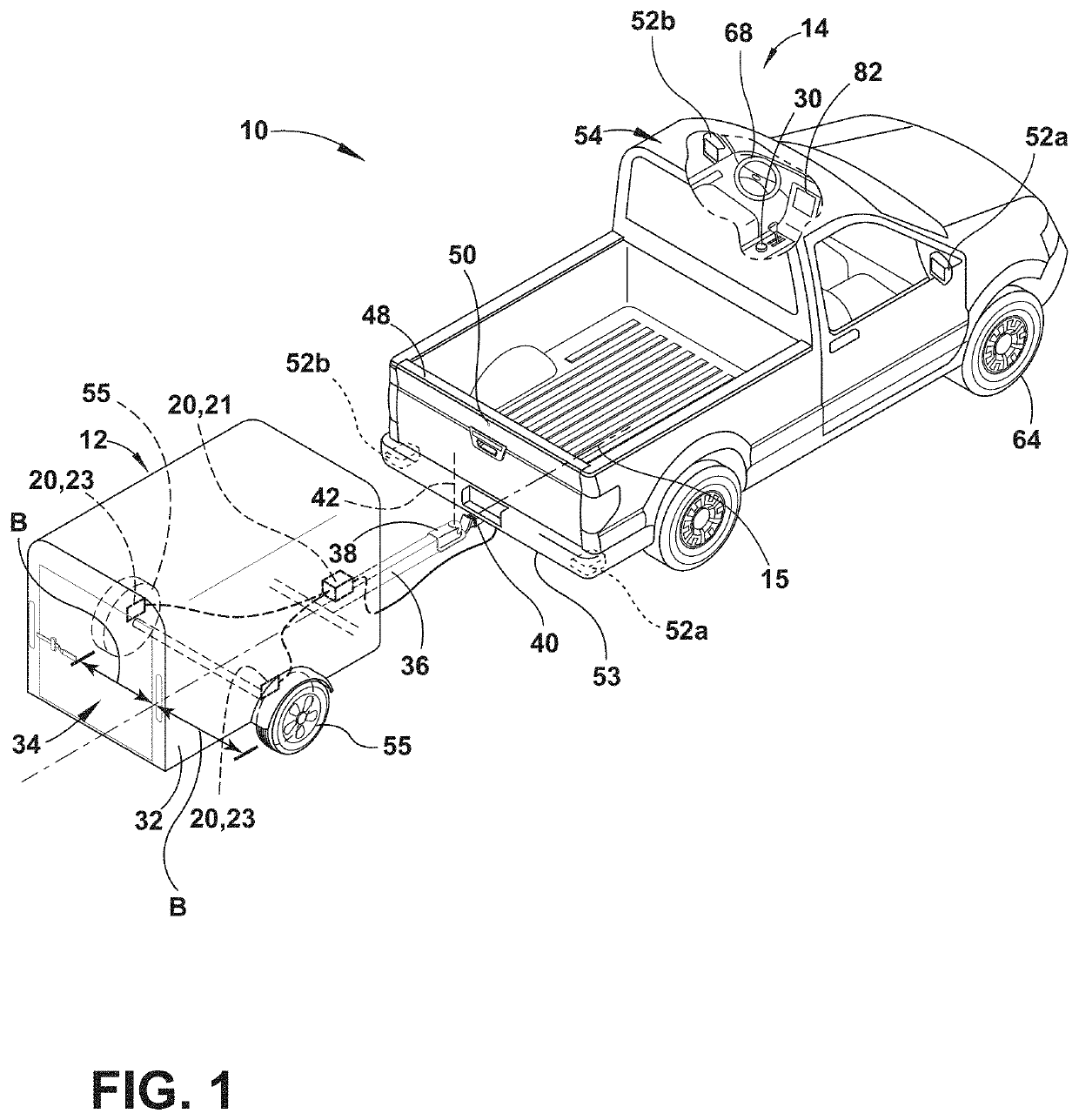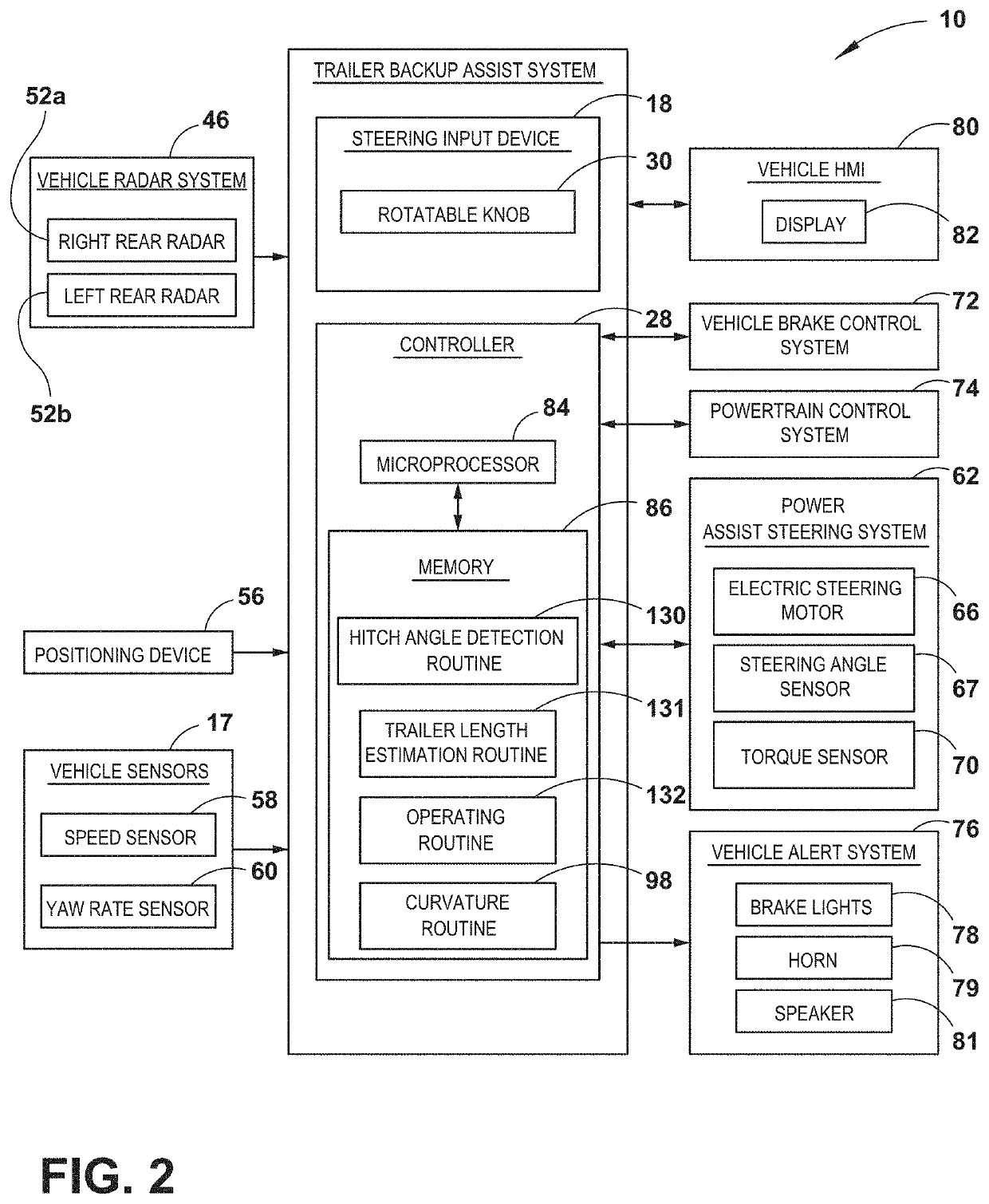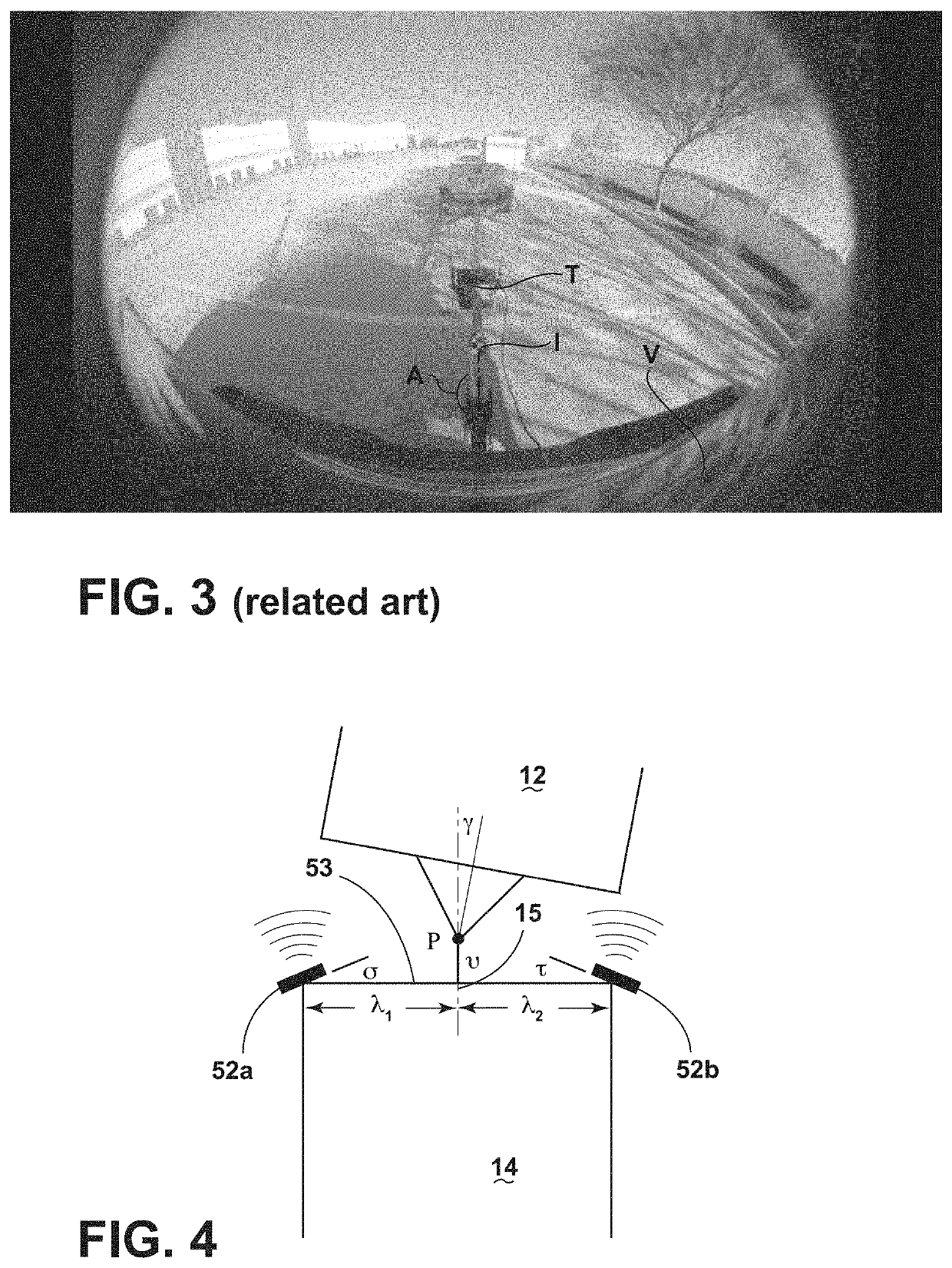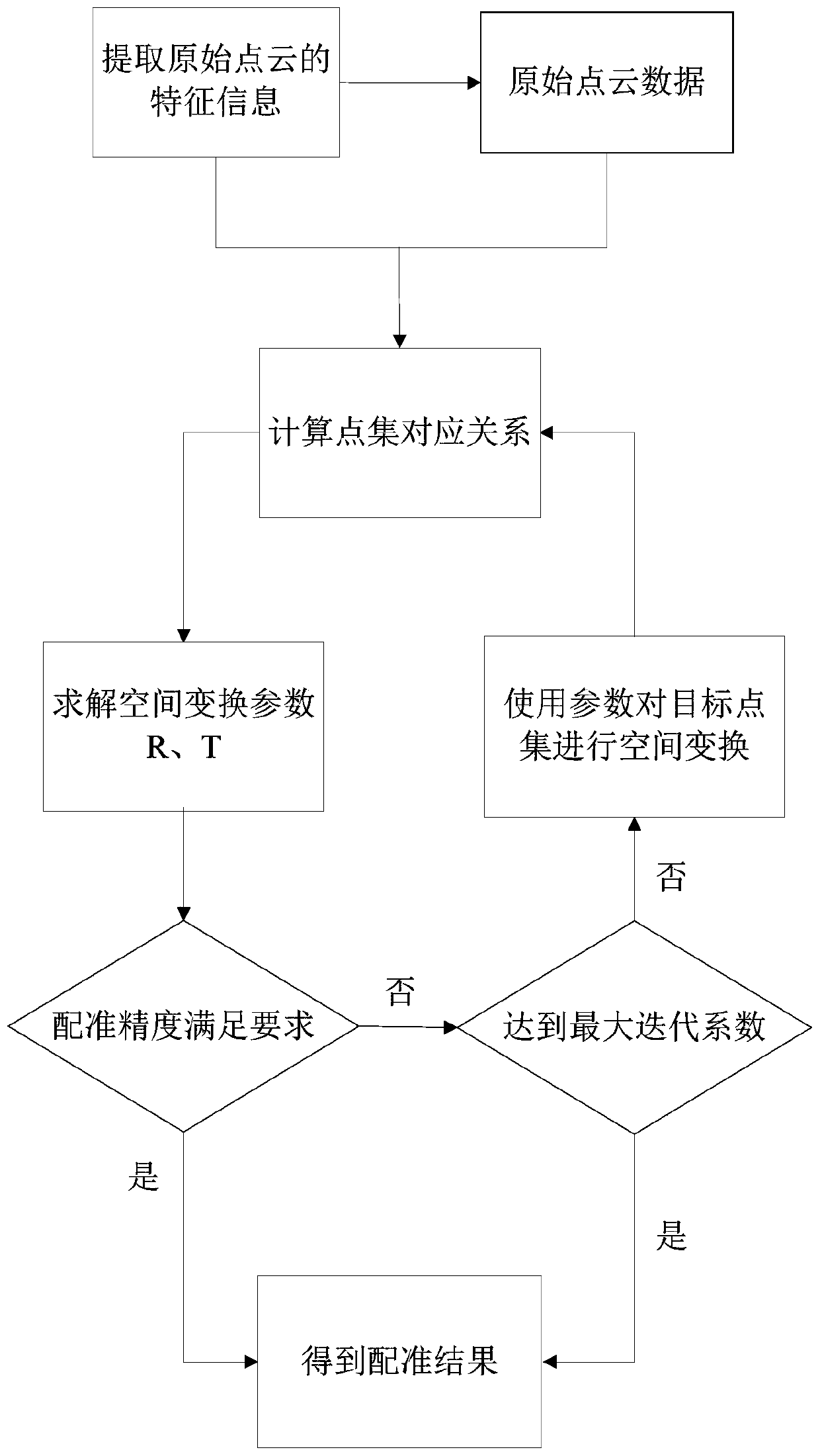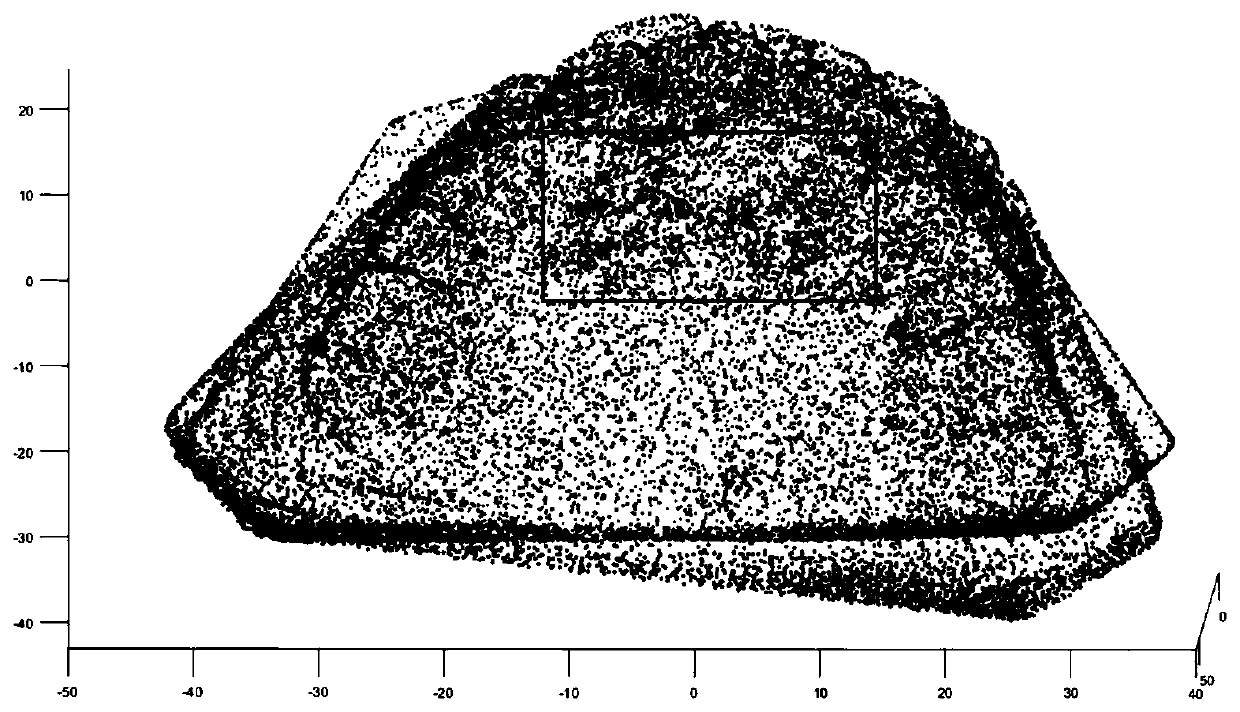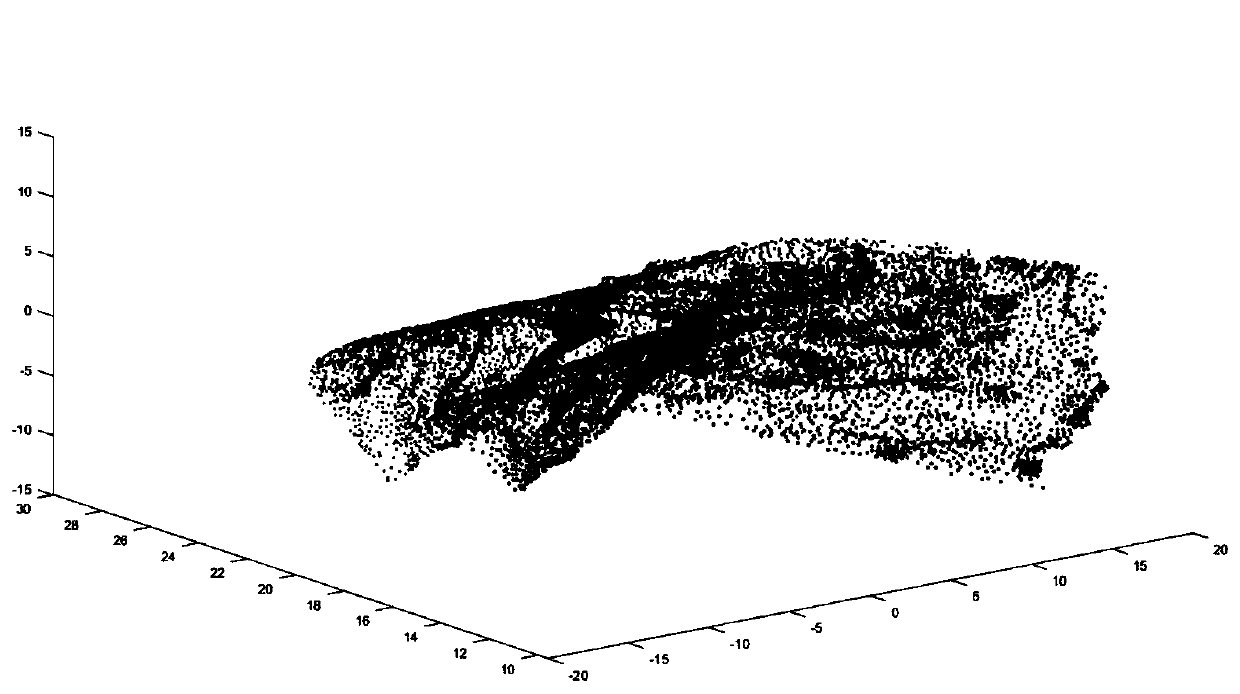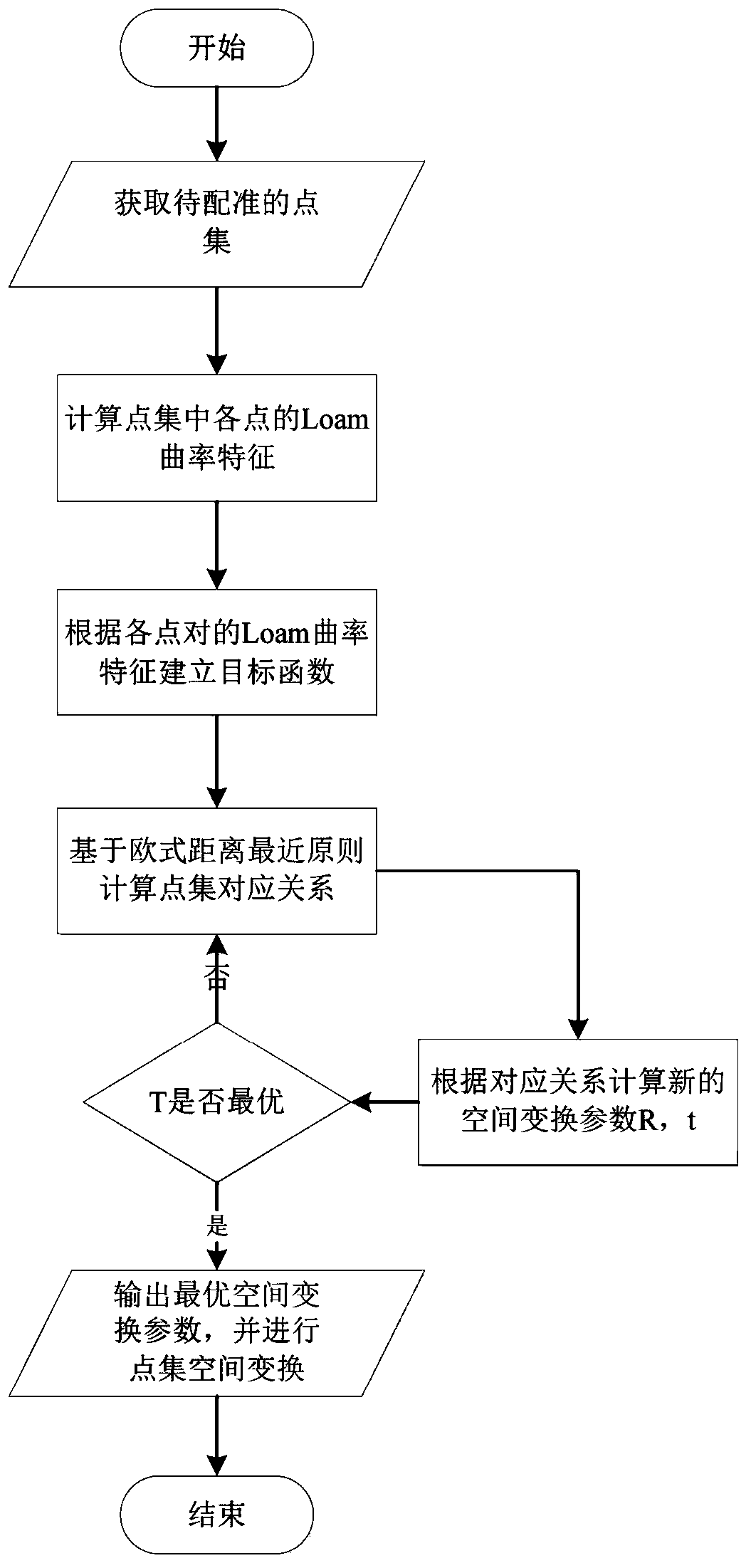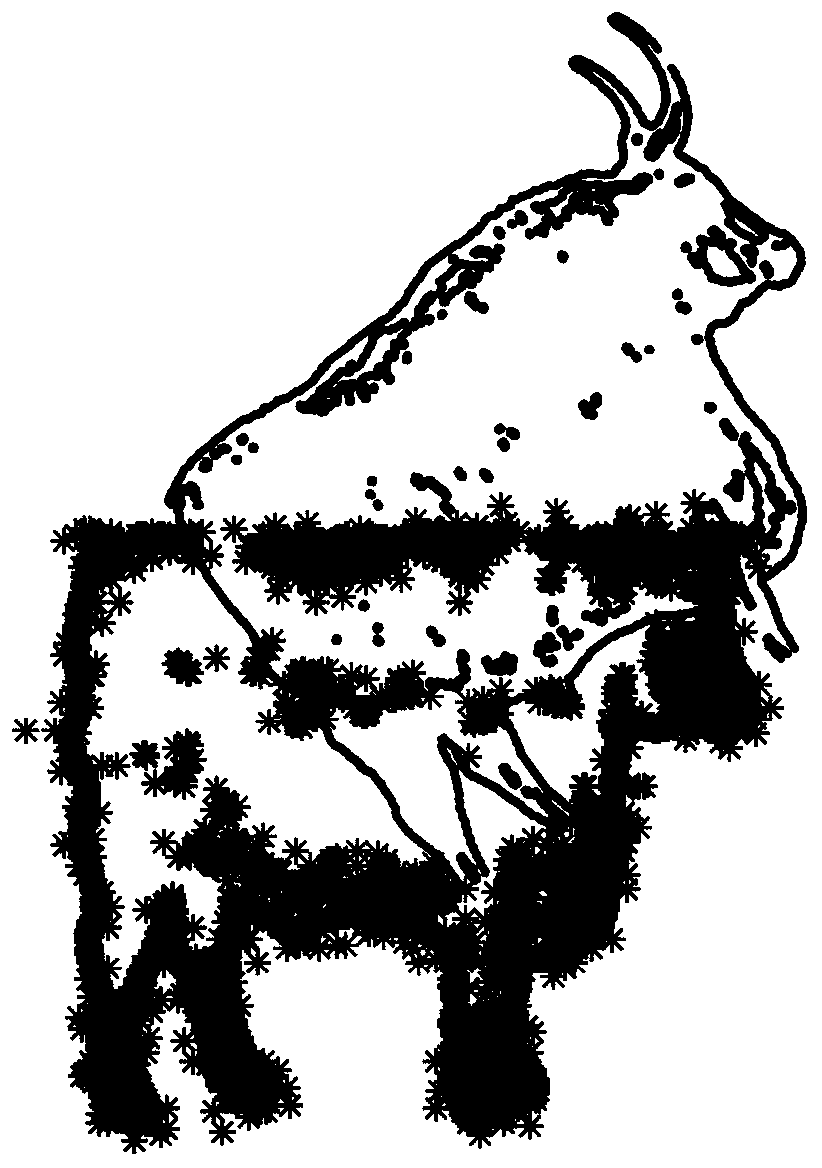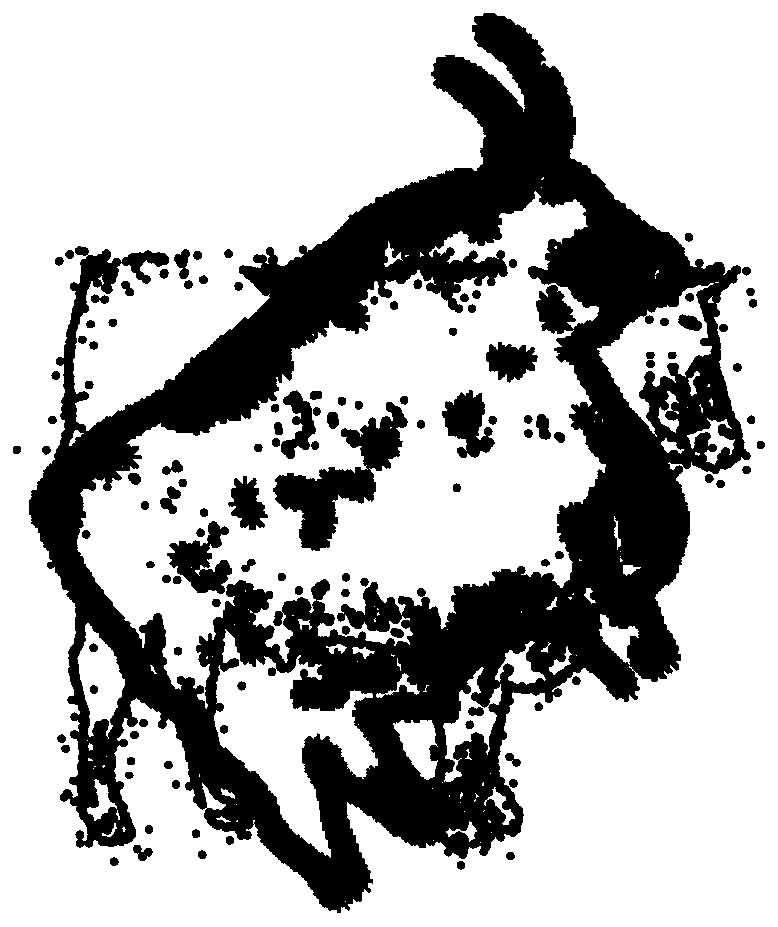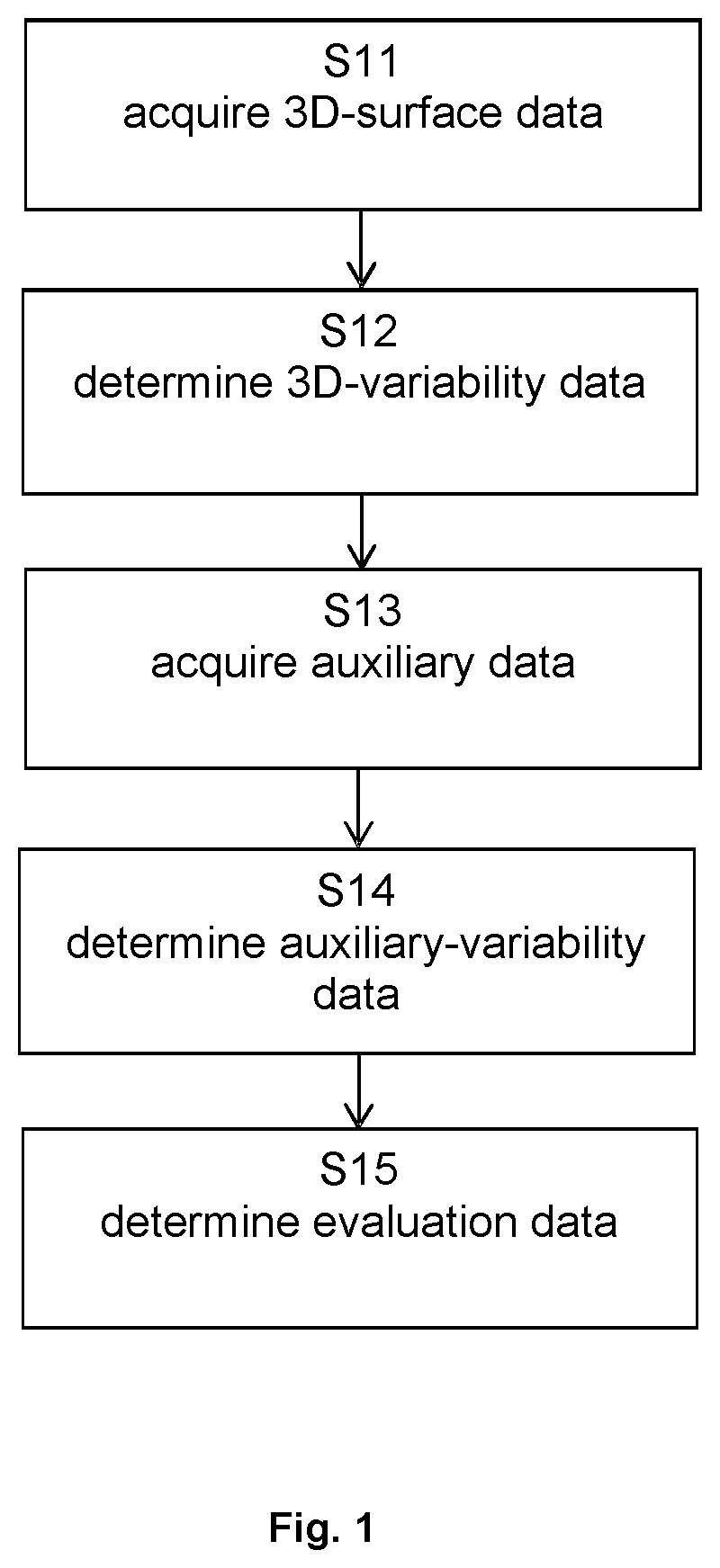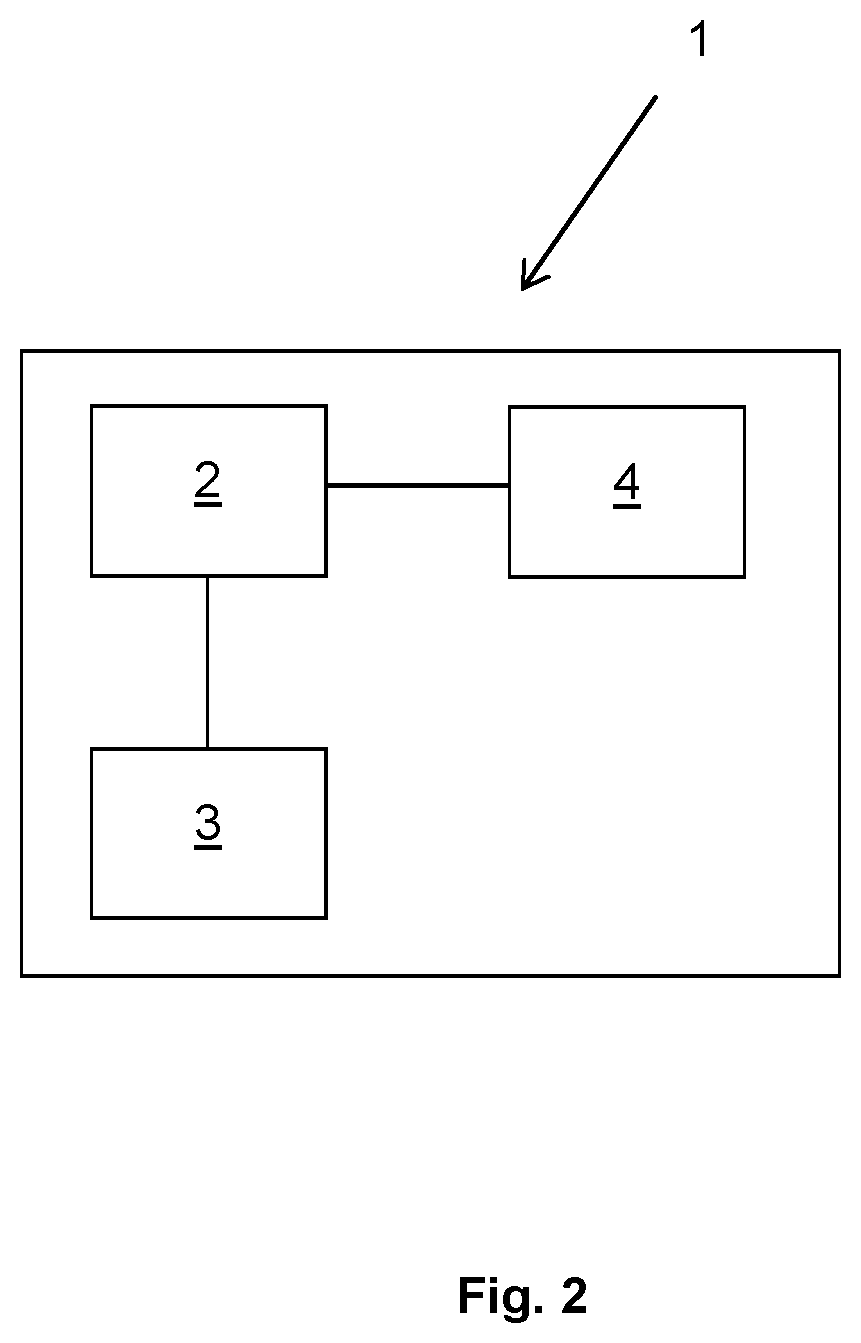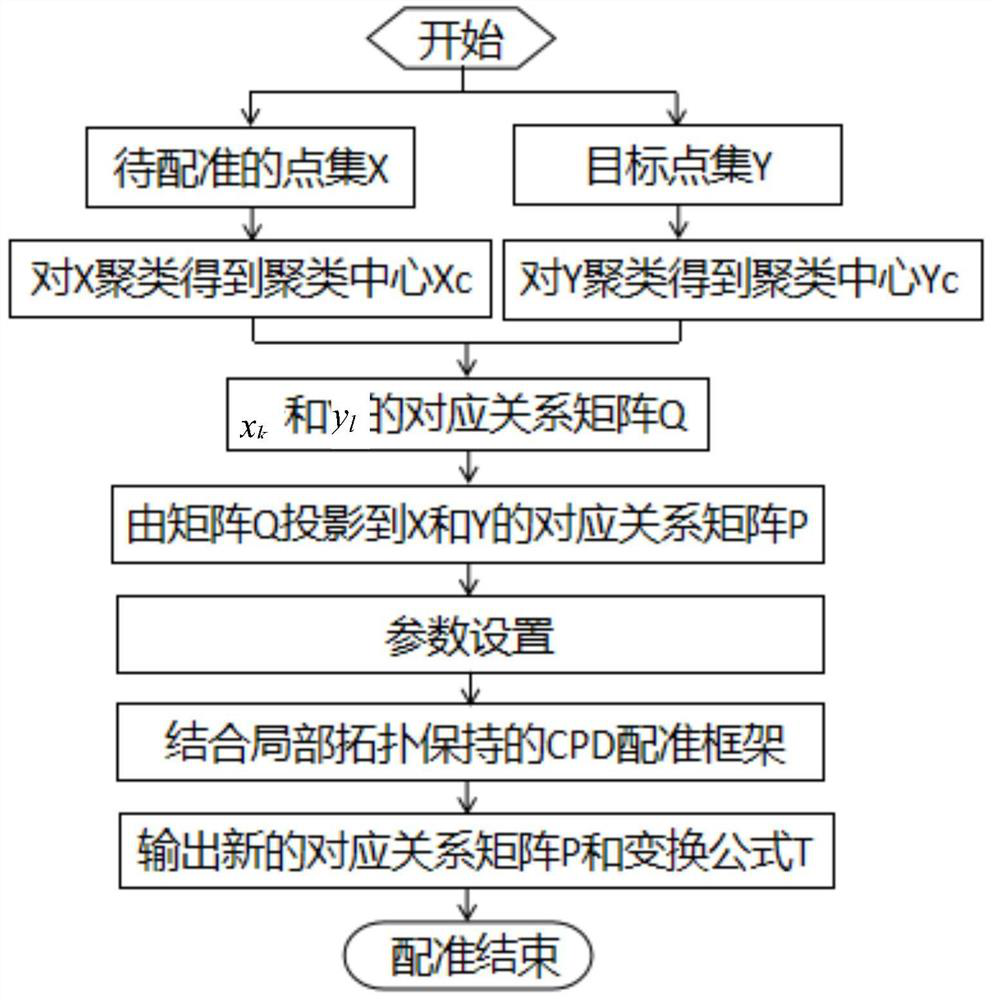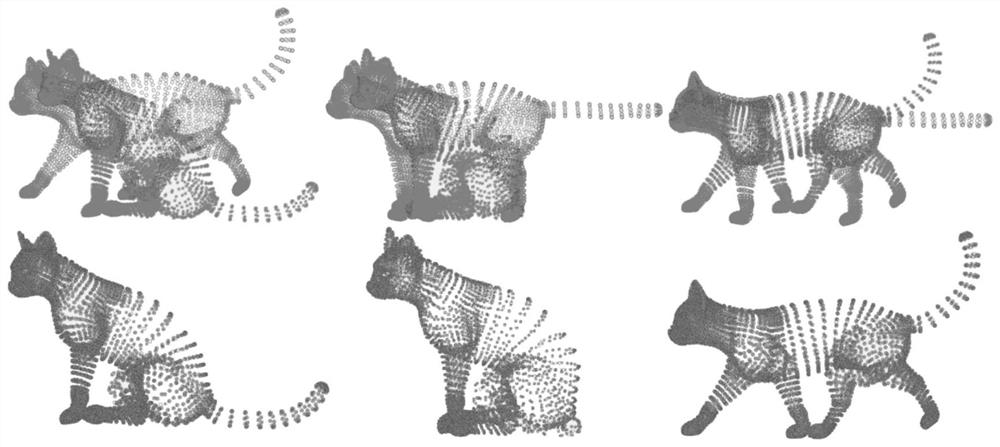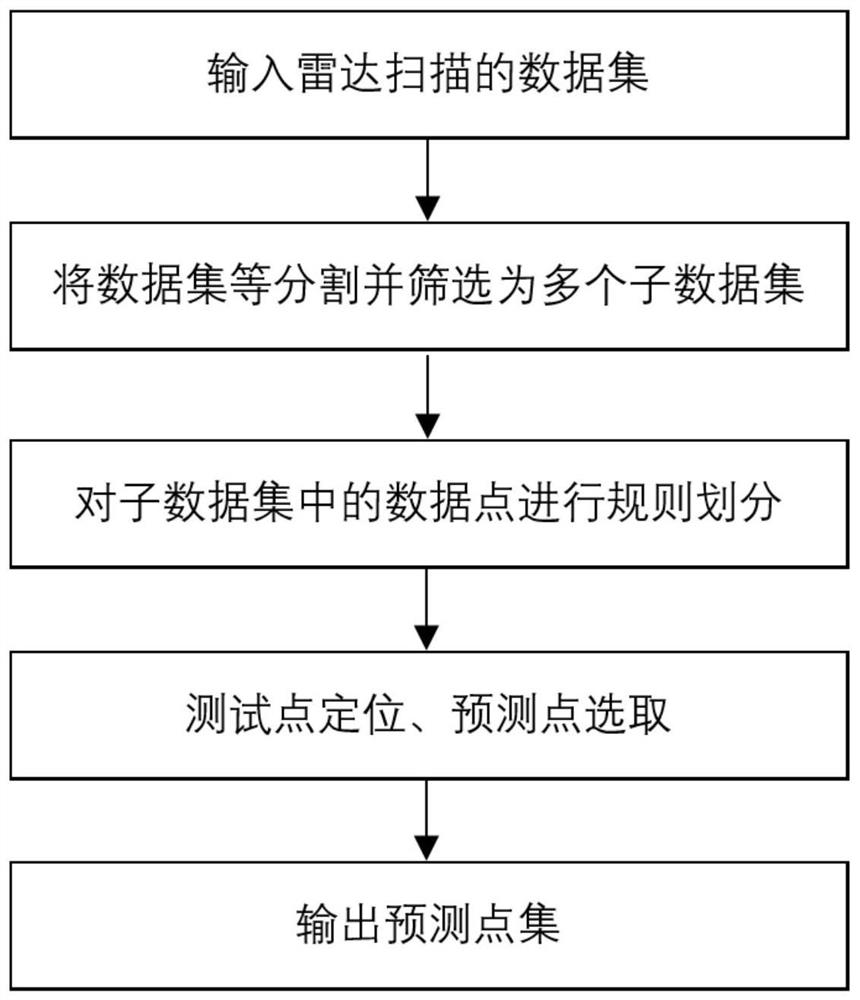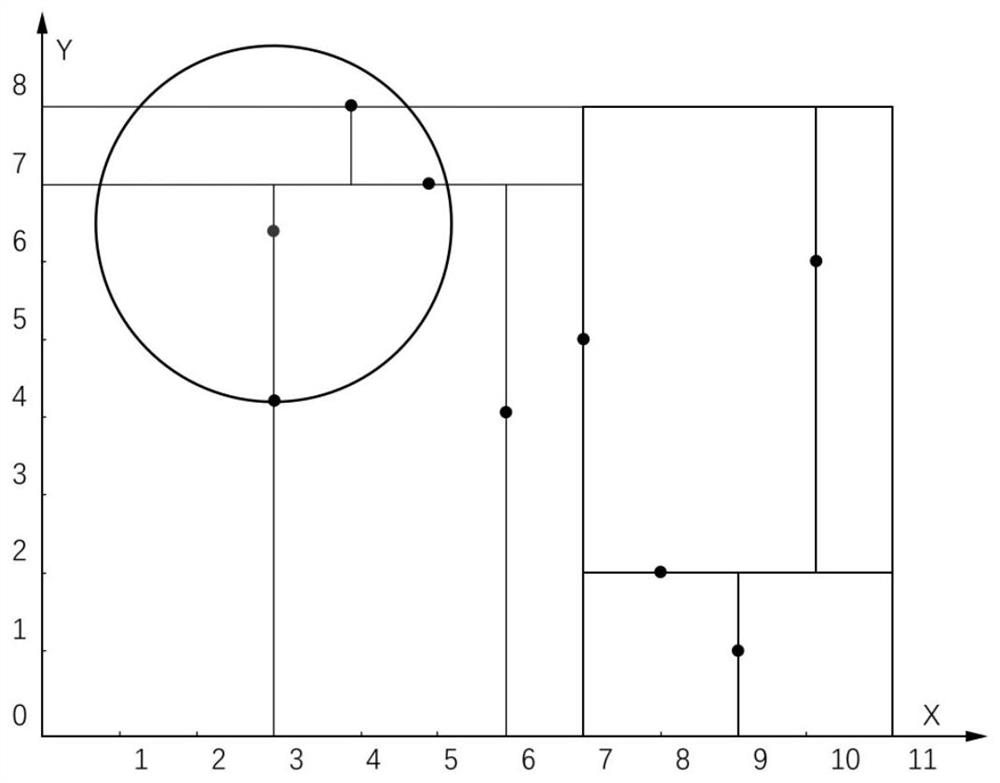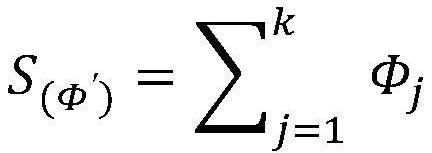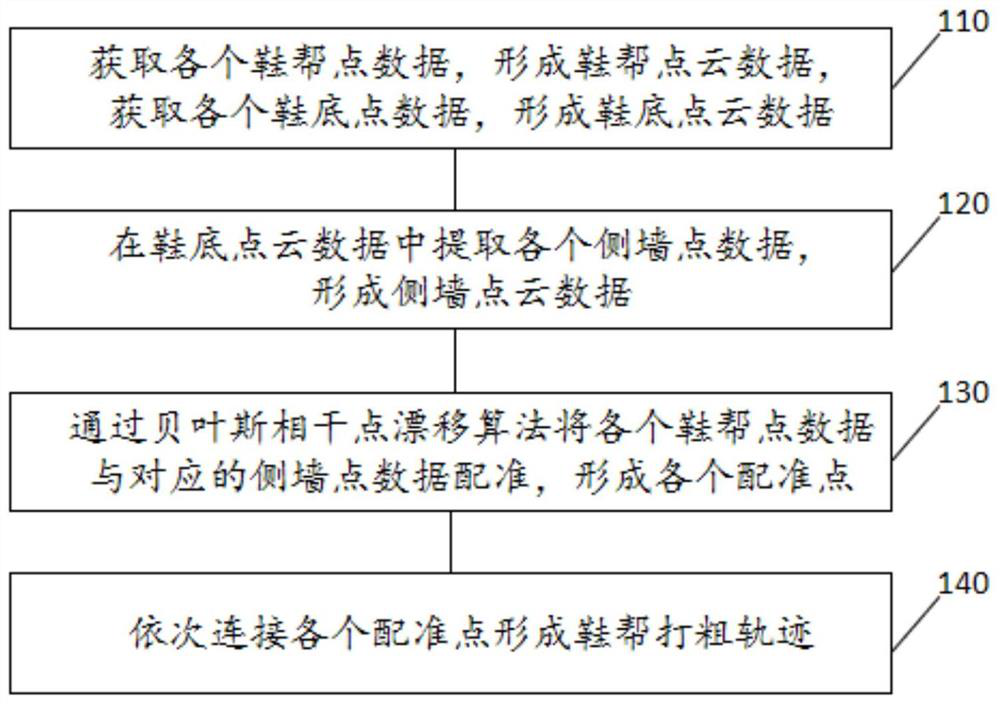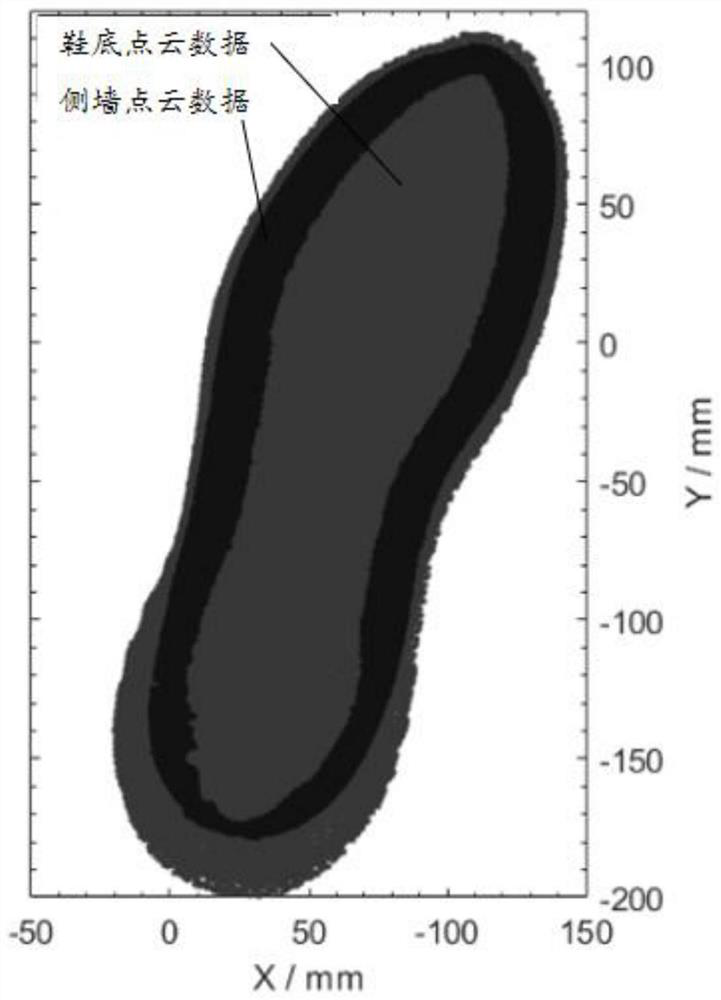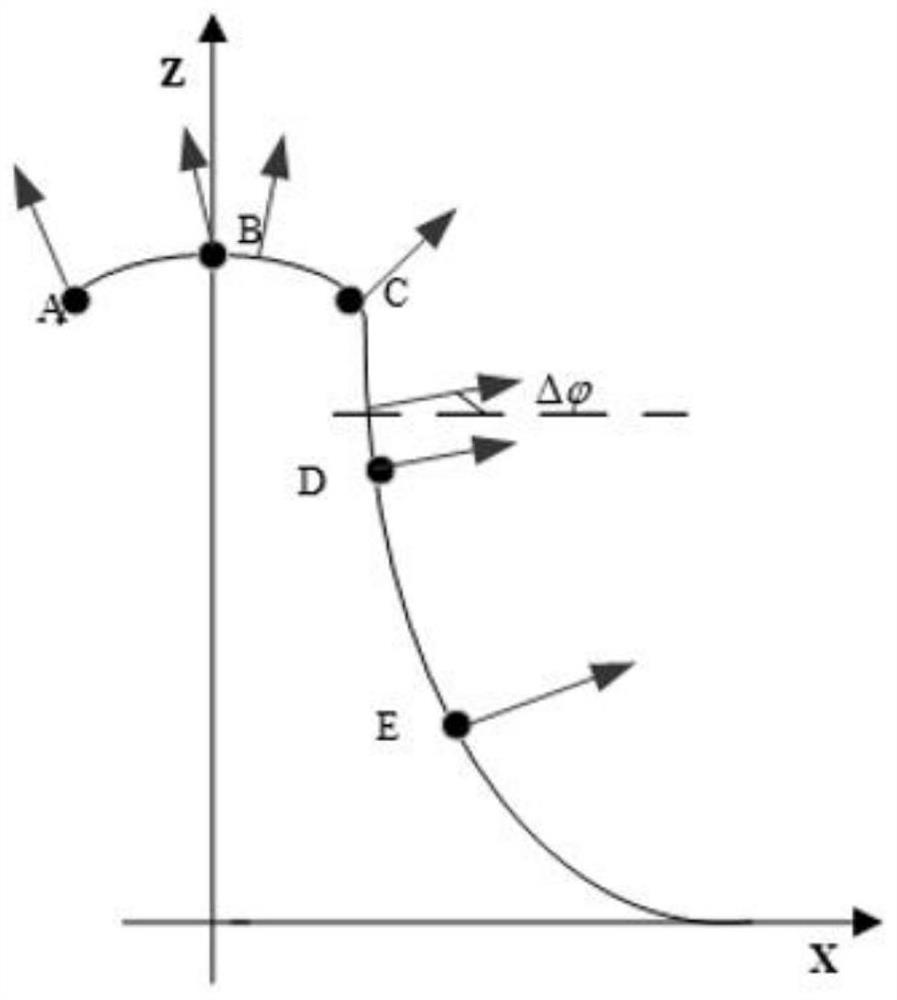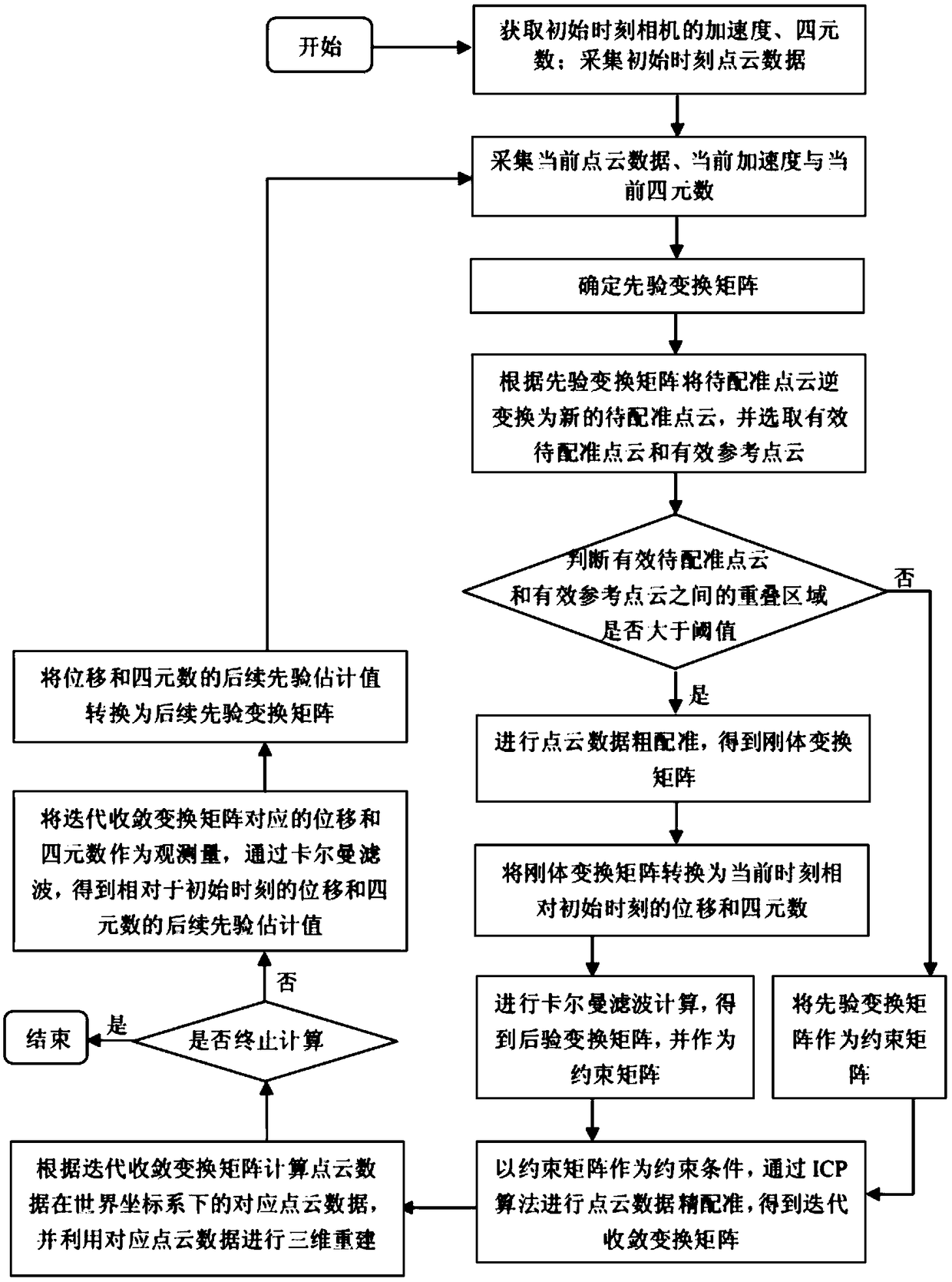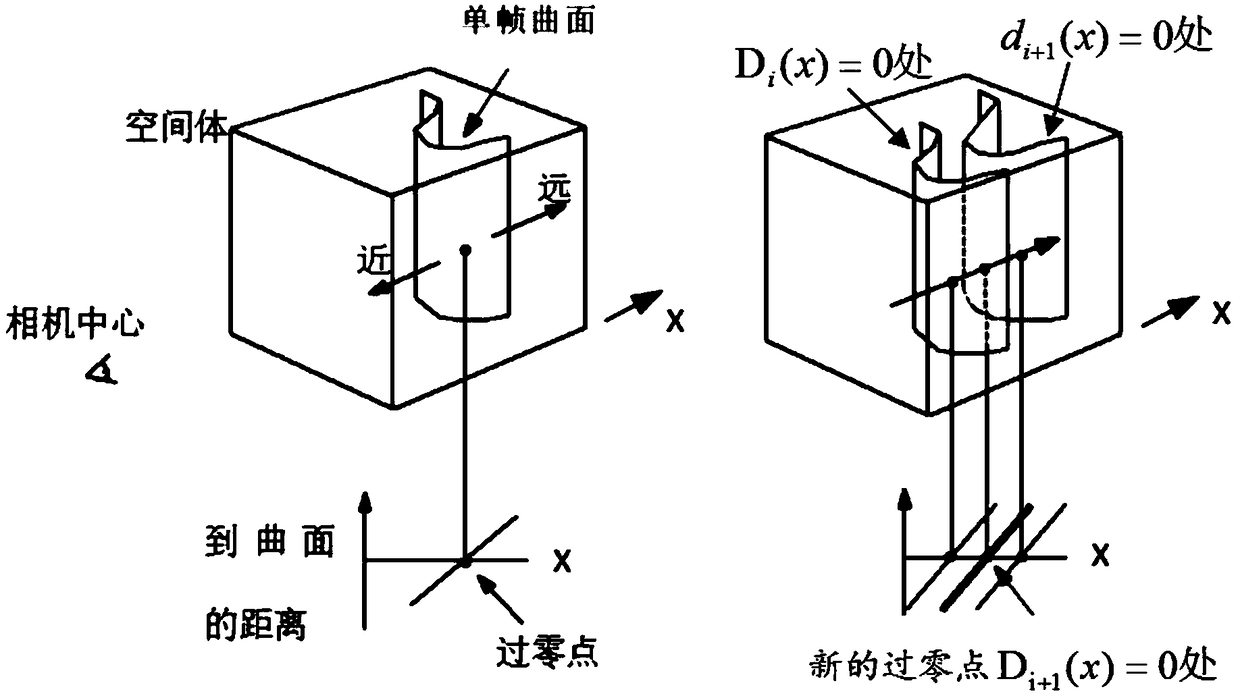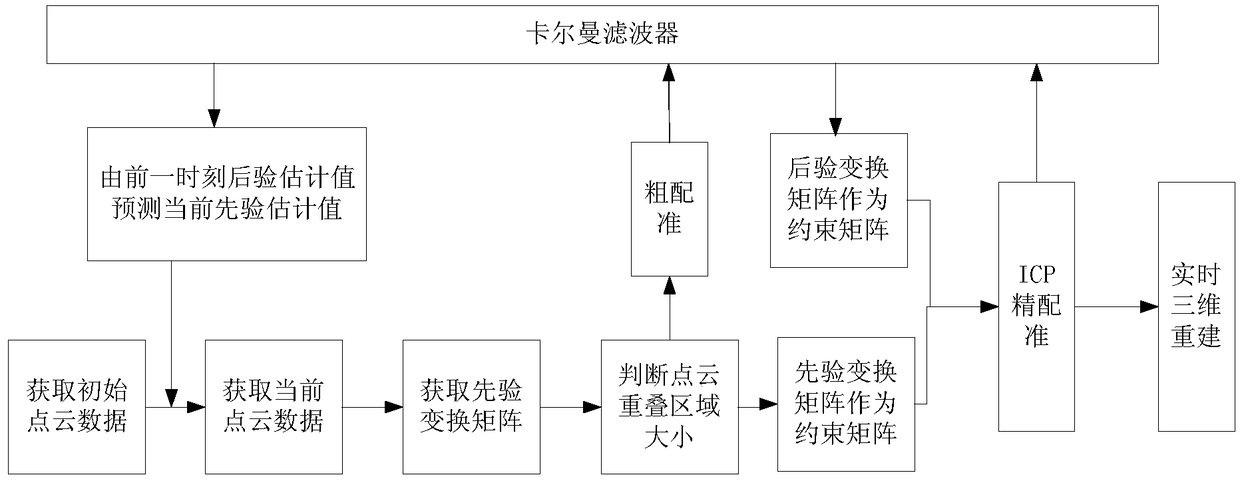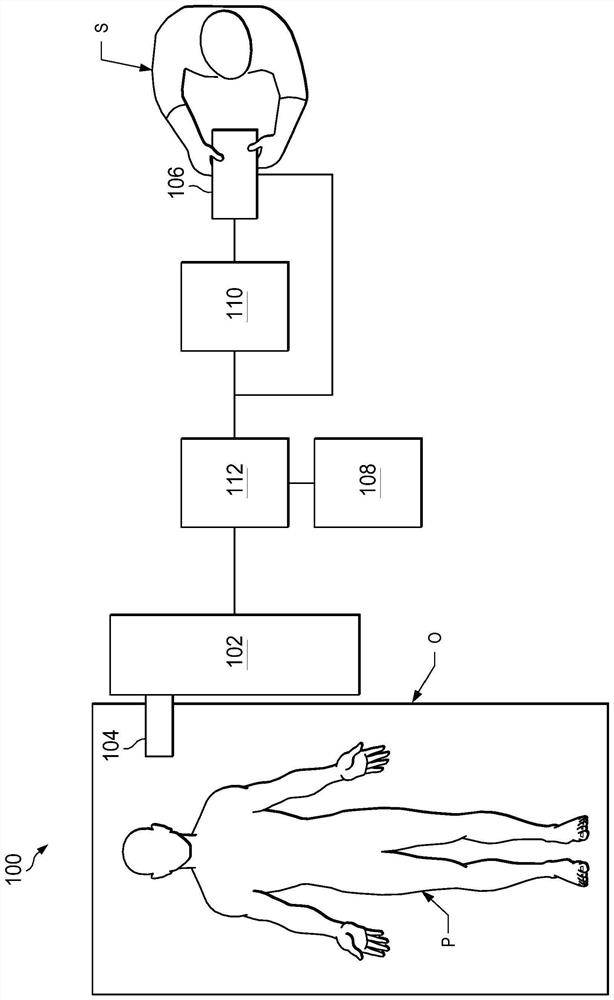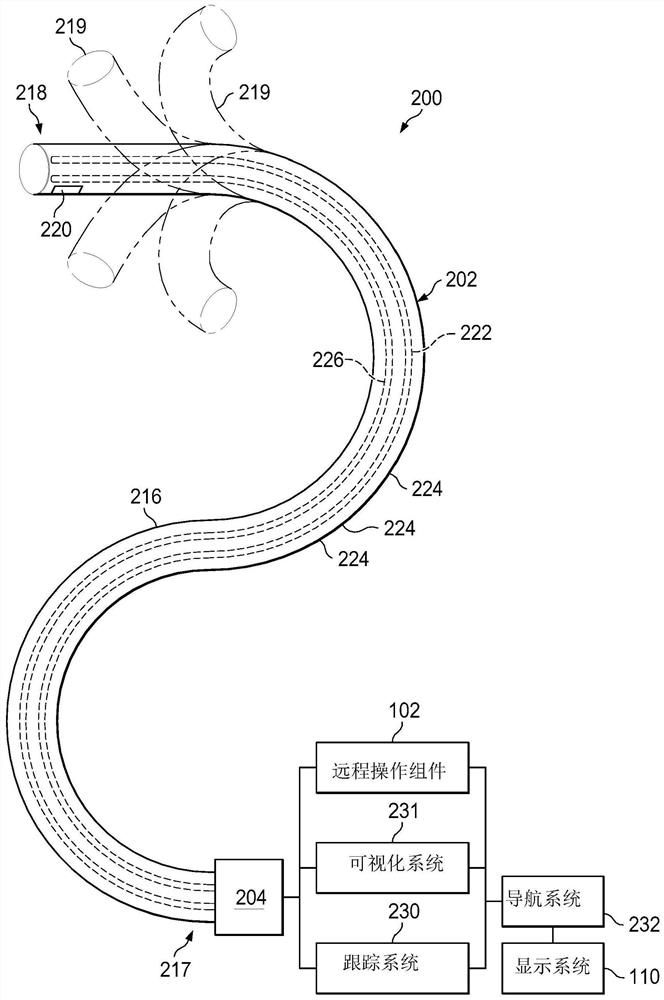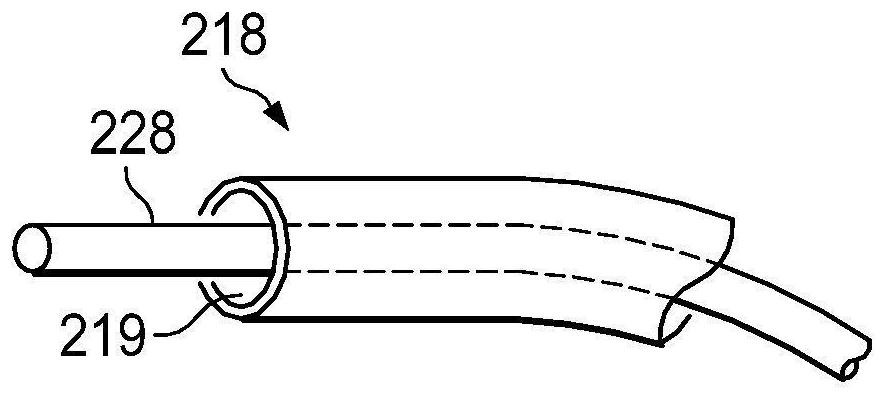Patents
Literature
Hiro is an intelligent assistant for R&D personnel, combined with Patent DNA, to facilitate innovative research.
39 results about "Point set registration" patented technology
Efficacy Topic
Property
Owner
Technical Advancement
Application Domain
Technology Topic
Technology Field Word
Patent Country/Region
Patent Type
Patent Status
Application Year
Inventor
In computer vision and pattern recognition, point set registration, also known as point matching, is the process of finding a spatial transformation that aligns two point sets. The purpose of finding such a transformation includes merging multiple data sets into a globally consistent model, and mapping a new measurement to a known data set to identify features or to estimate its pose. A point set may be raw data from 3D scanning or an array of rangefinders. For use in image processing and feature-based image registration, a point set may be a set of features obtained by feature extraction from an image, for example corner detection. Point set registration is used in optical character recognition, augmented reality and aligning data from magnetic resonance imaging with computer aided tomography scans.
System and method for determining convergence of image set registration
ActiveUS7106891B2Efficiently determinedImprove registrationImage enhancementImage analysisReference imageComputer science
Computer-based methods and systems for automatically determining convergence when registering image sets are provided. Example embodiments provide an Enhanced Image Registration System (EIRS), which includes an Image Comparison Module, a Transformation Optimizer, and a Convergence Calculator. When the EIRS receives two image sets to align, the Image Comparison Module compares two image sets to determine or measure how closely the image sets are aligned. The Transformation Optimizer determines an appropriate transformation to apply to one of the image sets to align it with the reference image set. The Transformation Optimizer then applies the determined transformation. The Convergence Calculator examines one or more points within the transformed image set to determine when convergence is attained.
Owner:CLOUD SOFTWARE GRP INC
Fusion method of multi-robot three-dimensional geometrical map
The invention discloses a fusion method of a multi-robot three-dimensional geometrical map, comprising the steps of projecting a three-dimensional geometrical map to be fused into two-dimensional grid maps; fusing the grid maps by adopting an image matching algorithm to acquire rotation parameters among the two-dimensional grid maps; and rotating and transforming the three-dimensional map and fusing the three-dimensional geometrical map by adopting a three-dimensional point set registration algorithm. The fusion method of the multi-robot three-dimensional geometrical map integrates the two-dimensional map fusion and the three-dimensional point set registration algorithm through considering geometrical characteristic information in the three-dimensional map to finish the fusion of the multi-robot three-dimensional geometrical map and obviously improve the fusion accuracy of the three-dimensional geometrical map. The fusion method of the multi-robot three-dimensional geometrical map is mainly applied to simultaneously positioning a plurality of robots and reestablishing the map and fusing partial map created by a single robot to form a global map.
Owner:ZHEJIANG UNIV
Method and apparatus for tie-point registration of disparate imaging sensors by matching optical flow
InactiveUS20030202701A1Image analysisCharacter and pattern recognitionPoint registrationReference image
A method and apparatus for enabling the registration of co-located, disparate imaging sensors by computing the optical flow of each sensor as all the sensors simultaneously observe a moving object, or as all the sensors simultaneously move observing an object. The tie point registration of disparate imaging sensors is made more robust by matching optical flow and by levering the temporal motion within a pair of video sequences and using an additional constraint to minimize the disparity in optical flow between registered video sequences. The method includes parametrically computing the optical flow of each video sequence separately relative to a reference frame pair, identifying a matching constellation of tie-points in the reference pair of images, for all frames, computing the positions of tie-points bi=b0+ei where ei=predictive term to generate a new set of tie-points, after transformation by optical flow. For each frame, the total squared error resulting from an over-determined solution of affine registration problem is computed. The choice of ei is adjusted to minimize the total squared error over all frames of video.
Owner:THE UNITED STATES OF AMERICA AS REPRESENTED BY THE SECRETARY OF THE NAVY
Multimodal medical image registration and visualization method
InactiveCN106097347AFriendly interfaceSimplify the configuration processImage enhancementImage analysisDiagnostic Radiology ModalityImaging quality
The invention relates to a multimodal medical image registration and visualization method. Based on FLTK, VTK, and IRTK technologies, the method provides a friendly operation interface and visualization functions, simplifies the complex algorithm parameter configuration process, facilitates registration operations, and realizes multi-modal medical image registration; provides image denoising preprocessing to Improve image quality and reduce the impact of noise on registration accuracy; in the case of large coordinate position differences between the target image and the source image, a point set registration method is provided to complete the coarse registration of the coordinate position, which provides a basis for subsequent rigid, affine and nonlinear registration. Accurate implementation for initialization; support cascade working mode of multiple registration methods to improve registration efficiency; use multi-threaded programming technology to realize real-time dynamic display of the registration process, which is convenient for understanding and monitoring the registration process; registration The result is automatically output and saved; using the transformation matrix of the registration result and adding a smooth limit item, the function of diffeomorphism transformation and fast segmentation can be realized.
Owner:FUZHOU UNIV
High-precision automatic neuronavigation space registration method
ActiveCN103908346AImprove registration accuracyPoint set registration implementationImage analysisDiagnosticsPoint cloudImaging processing
The invention belongs to the field of medical image processing and application and relates to a high-precision automatic neuronavigation space registration method. The method comprises, through a global optimization point set registration method based on Gaussian mixture models, transforming coordinates of a point cloud obtained by a laser scanner and a point cloud obtained through CT (computed tomography) to achieve primary registration; then by means of a disordered point automatic registration method, performing secondary registration on the result of the primary registration and patient space reconstructed by the CT during neuronavigation. Usage results indicate that the high-precision automatic neuronavigation space registration method is easy to implement, reliable in precision, applicable to clinical application and capable of being integrated in an existing navigation system, thereby greatly improving the precision of the navigation system.
Owner:FUDAN UNIV
Local area accurate deformation registration algorithm combining point registration
InactiveCN104599268AImprove registration accuracyAchieve precisionImage enhancementImage analysisPoint registrationUltimate tensile strength
The invention discloses a local area accurate deformation registration algorithm combining point registration. The local area accurate deformation registration algorithm is characterized in that the feature-based point registration method is combined with the intensity-based image registration method, especially the result of point registration is converted to a deformation field through a spline model, the deformation field serves as a follow-up initial deformation field of intensity-based image registration, and thus the two different registration methods are combined. The local area accurate deformation registration algorithm combining point registration ingeniously makes use of the characteristic of high registration accuracy of point registration, improves the registration accuracy of areas of interest, accordingly improves accuracy of illuminated accumulated dose, and achieves accuracy interference, regulation and control on registration of local areas in the images. The local area accurate deformation registration algorithm combining point registration can be widely applied to the field of image deformation registration.
Owner:CANCER CENT OF GUANGZHOU MEDICAL UNIV
Automatic extraction method for character strokes of vector fonts
ActiveCN104992143AGood for batch runningAccurate Stroke Extraction ResultsCharacter and pattern recognitionGlyphPoint set registration
The invention relates to an automatic extraction method for character strokes of vector fonts. The method includes steps of 1) performing skeleton extraction on to-be-extracted target fonts and template fonts corresponding to the target fonts and having stroke classification information in a template database and obtaining data point set and template point set; 2) taking the data point set, the template point set and the stroke attachment of the template point set as input, performing non-rigid point set registration based on structural information and obtaining the stroke attachment of the data point set; 3) converting the stroke attachment of the data point set to attachment of data outline segments so as to enable each outline segment forming a character shape outline to have corresponding attached strokes; 4) connecting the generated outline segment and obtaining a final vector stroke extraction result. According to the invention, font stroke extraction can be realized accurately and no manual intervention is needed. Automatic algorithm operation can be achieved and mass operation of vector stroke extraction can be facilitated.
Owner:PEKING UNIV
Global Registration of Multiple 3D Point Sets Via Optimization on a Manifold
A method for registering multiple 3D point sets by determining optimal relative positions and orientations of the 3D point sets. Initial values are determined for the rotation matrices corresponding to the relative orientations of reference frames of the 3D point sets. A registration error cost function is optimized on a product manifold of all of the rotation matrices to determine optimal values of the rotation matrices. The optimal values of the rotation matrices are used to determine optimal values for translation vectors corresponding to the relative positions of the reference frames of the 3D point sets. The 3D point sets are registered on a common reference frame using the optimal rotation matrices and the optimal translation vectors.
Owner:AT&T INTPROP II L P
Method for predicting morphological changes of liver tumor after ablation based on deep learning
ActiveCN110782474AAccurate assessmentImage enhancementMathematical modelsStochastic gradient descentExAblate
The invention discloses a method for predicting the morphological change of a liver tumor after ablation based on deep learning. The method comprises the following steps: acquiring a medical image mapof a patient before and after liver tumor ablation; preprocessing the medical images before and after ablation; obtaining a preoperative liver region map and a preoperative liver tumor region map; acquiring a postoperative liver region map, a postoperative ablation region map and a postoperative liver tumor ghost image; obtaining a transformation matrix by using a CPD point set registration algorithm, and obtaining a registration result graph according to the transformation matrix; training the network through a stochastic gradient descent method to obtain a liver tumor prediction model; andpredicting the morphological change of the liver tumor of the patient after ablation by using the liver tumor prediction model. According to the method, the morphological change of the liver tumor after ablation of the patient can be predicted according to the CT / MRI image of the patient, a basis is provided for quantitatively evaluating whether the ablation area completely covers the tumor, a doctor can accurately evaluate the postoperative curative effect, and a foundation is laid for a subsequent treatment scheme of the patient.
Owner:GENERAL HOSPITAL OF PLA
Non-rigid point set registration method based on enhanced affine transformation
ActiveCN110197503AAvoid interferenceGuaranteed accuracyImage enhancementImage analysisRobustificationPattern recognition
The invention discloses a non-rigid point set registration method based on enhanced affine transformation, belongs to the technical field of image processing, and relates to a point set registration method. According to the present invention, the problem that an existing point set registration method is low in registration precision and poor in robustness due to the local convergence of a registration precision objective function, is solved. According to the method, the rough registration is completed by utilizing a global non-rigid transformation model capable of representing a global deformation rule, and then a rough registration result is finely optimized by utilizing a local non-rigid transformation model, so that the point matching is realized. The method comprises the following steps of firstly, constructing a global non-rigid transformation model by utilizing enhanced affine transformation based on a nonlinear polynomial, and overcoming a local convergence problem in a gradientoptimization process in combination with a registration precision objective function based on a Gaussian field to realize coarse registration; and then taking a coarse registration result as an initial value, and performing fine optimization on the objective function by using a local non-rigid transformation model to realize the final point set registration.
Owner:NORTH NIGHT VISION TECH
Point set registration method based on outer contour rough matching
PendingCN113470084AExcellent registration resultShorten registration timeImage analysisRigid transformationPoint set registration
The invention discloses a point set registration method based on outer contour rough matching, which comprises the following steps: constructing an MVEE model for a template point set to be registered, and obtaining a minimum circumscribed ellipsoid parameter of the template point set, with the minimum circumscribed ellipsoid parameter at least comprising a long principal axis vector and a central point position of a constructed ellipse or ellipsoid; constructing an MVEE model for the target point set, and obtaining a minimum circumscribed ellipsoid parameter of the target point set; setting a plurality of direction templates in different directions; obtaining multiple groups of rigid transformation matrixes according to the direction template, the long principal axis vector and the center point position; performing rough matching on the template point set and the target point set by using the multiple groups of rigid transformation matrixes to obtain multiple groups of rough matching results; and carrying out fine matching on the multiple groups of rough matching results by utilizing a CPD algorithm, and selecting an optimal matching result. Global structure information of point sets is considered, rough matching is carried out on the two point sets through a minimum volume closed ellipsoid model, then precise registration is carried out through CPD, and a more precise registration result can be obtained.
Owner:XIDIAN UNIV
One-dimensional non-uniform gear morphology point cloud precise registration method
The invention discloses a one-dimensional non-uniform gear morphology point cloud precise registration method, and relates to the field of data processing. The one-dimensional non-uniform gear morphology point cloud precise registration method is used for solving the problem that a discrete sequence registration error is large because sample intervals of corresponding points are different when an ICP registration algorithm is adopted to carry out registration on the corresponding points of an actually-measured gear sequence and a virtual gear sequence. The method comprises the steps that first, quantity registration is carried out on the actually-measured gear sequence and the virtual gear sequence; second, initial phase registration is carried out on the actually-measured sequence and the virtual gear sequence; third, corresponding-point registration is carried out on the actually-measured sequence and the virtual gear sequence. The one-dimensional non-uniform gear morphology point cloud precise registration method is based on the actually-measured gear sequence, regenerates virtual gear sequence with the same sample intervals of the corresponding points as the actually-measured gear sequence, and further improves the accuracy of the gear one-dimensional non-uniform point cloud data registration. The one-dimensional non-uniform gear morphology point cloud precise registration method can achieve one-dimensional non-uniform gear morphology point cloud precise registration, and is high in registration accuracy, simple to calculate and reliable.
Owner:CHANGCHUN UNIV OF SCI & TECH
Multi-view three-dimensional ISAR scattering point set registration method
ActiveCN112529945ASolve difficult registration problemsSolve the problem that it is difficult to reflect the overall characteristics of the point setImage enhancementImage analysisNeighbor algorithmPoint set registration
The invention discloses a multi-view three-dimensional ISAR scattering point set registration method. The method comprises the steps of obtaining a source point set and a target point set of an objectbased on three-dimensional ISAR imaging; respectively performing surface fitting on each point in the source point set and each point in the target point set to extract curvature values, and selecting points of which the curvature values meet sorting requirements from a plurality of neighborhood scales as feature points of the source point set and the target point set respectively; carrying out initial registration on the source point set and the target point set: combinig a coordinate value root-mean-square error and distance root-mean-square error evaluation function to obtain an optimal matching four-point pair, and substituting the coordinates of the matching point pair into a singular value decomposition method to calculate a transformation relationship between the point sets; and obtaining a globally optimal solution by adaptively changing an iterative step length by utilizing the optimal matching four-point pair and an iterative nearest neighbor algorithm based on an adaptive threshold, so that the point set converges to the globally optimal solution. According to the method, the matching point pair with high matching degree can be effectively found, and the registration precision can be improved.
Owner:XIDIAN UNIV
Incremental farmland boundary precision calibration method and device with constraint point set registration
PendingCN111127525AHigh positioning accuracyImprove the efficiency of extracting farmland boundariesImage enhancementImage analysisPoint set registrationSatellite remote sensing
The invention provides an incremental farmland boundary precision calibration method and device with constraint point set registration, and the method comprises the following steps: pairing farmland boundary data extracted based on a satellite remote sensing image with farmland boundary data obtained through actual measurement, storing the paired farmland boundary data in a database, and exportingthe farmland boundary data; judging the effectiveness of the extracted farmland boundary according to the shape similarity and the region overlapping rate of the farmland boundary extracted based onthe satellite remote sensing image and the actually measured farmland boundary; extracting corresponding points of farmland boundaries, correcting the extracted farmland boundaries based on rigid point set registration, and correcting the extracted farmland boundaries based on incremental joint point set registration; and storing the corrected farmland boundary into a database. According to the invention, the positioning precision of the farmland boundary extracted based on the high-resolution satellite remote sensing image and the efficiency of extracting the farmland boundary are improved.
Owner:QIANXUN SPATIAL INTELLIGENCE INC
System and Method for Alignment of Volumetric and Surface Scan Images
A method for alignment of volumetric and surface scan images, said method comprising the steps of: receiving a volumetric image and surface scan image, wherein the volumetric image is a three-dimensional voxel array of a maxillofacial anatomy of a patient and the surface scan image is a polygonal mesh corresponding to the maxillofacial anatomy of the same patient; segmenting the volumetric image and surface scan image into a set of distinct anatomical structures by assigning each voxel in the volumetric image an identifier by structure and assigning each vertex or face of the mesh from the surface scan image an identifier by structure, wherein at least one of the distinct anatomical structures are in common between the volumetric and the surface scan image; extracting a polygonal mesh from the volumetric image featuring common structures with the polygonal mesh from the surface scan image; converting both meshes from the volumetric image and from the surface scan to a point cloud; and aligning the converted meshes via point clouds using a point set registration.
Owner:DGNCT LLC D B A DIAGNOCAT
Method for calculating theoretical center of welding spot of BGA image
ActiveCN112184715ANo errorsPrecise positioningImage enhancementImage analysisGeometric relationsEngineering
The invention discloses a method for calculating a theoretical center of a welding spot of a BGA image, and the method comprises the following steps: 1, obtaining the BGA image, carrying out welding spot analysis of the BGA image, and obtaining a target point set corresponding to an actual welding spot; 2, establishing a mathematical model of physical distribution of a welding spot array on the BGA chip by adopting an improved grid type template generation method to obtain a template point set; 3, establishing an affine model according to the geometrical relationship, establishing mapping fromthe template point set to the image point set through the affine model, and calculating a matching relationship between the point sets according to the mapping; and 4, performing point set registration according to the matching point pairs obtained in the step 3 to minimize a distance function between a theoretical center and an actual center, and outputting the theoretical center. According to the method, the BGA chip images are paired in an overall mapping mode, and the method has the advantages of being good in positioning effect and accurate in result.
Owner:WUHAN INSTITUTE OF TECHNOLOGY
Hitch angle detection using automotive radar
ActiveUS20220063720A1High sensitivityIncrease the rotation angleTowing devicesTrailer steeringRadar systemsData set
A vehicle trailer detection system includes a radar system and a controller receiving object point location data from the radar system at an increased sensitivity level, storing sequential first and second object point location data sets, and applying a rotational point set registration to the first and second object point location data sets to achieve a match between a subset of persistent point locations within the first and second object point location data sets to output an estimated rotation angle. The persistent point locations in the first and second data sets are determined to correspond with detected points on a trailer coupled with the vehicle. The controller refines the estimated rotation angle by minimizing an error in matching between the persistent point locations in the first and second object point location data sets to output a determined hitch angle between the trailer and the vehicle about a coupling point.
Owner:FORD GLOBAL TECH LLC
Accurate rigid body registration method based on fusion of point set data and feature information
ActiveCN110363800AImprove accuracyImprove robustnessImage enhancementImage analysisMean squareDimensionality reduction
The invention discloses an accurate rigid body registration method based on fusion of point set data and feature information, which comprises the following steps: for a known template point set and ato-be-registered target point set, carrying out dimensionality reduction on the data by utilizing a principal component analysis method and extracting relatively stable feature information; then, establishing a point set registration model based on fusion of the original point set and the feature information; aiming at the model, establishing a corresponding relation of corresponding points between a target point set and a template point set, solving a transformation parameter of space registration by utilizing the point-to-point corresponding relation between the template point set and the target point set, and carrying out space transformation on the target point set; and iterating the previous step until the mean square error between the corresponding point pairs of the target point setand the template point set is smaller than a given threshold value or reaches the maximum number of iterations, and finally completing registration of the target point set and the template point set.The method has higher accuracy and better robustness for data with more noise points and abnormal values, and can be applied to medical image registration and scene reconstruction and positioning.
Owner:XI AN JIAOTONG UNIV
An Accurate Rigid Body Registration Method Based on Fusion of Point Set Data and Feature Information
ActiveCN110363800BImprove accuracyImprove robustnessImage enhancementImage analysisTransformation parameterMedical imaging
The invention discloses an accurate rigid body registration method based on the fusion of point set data and feature information. The template point set and the target point set to be registered are known, and the principal component analysis method is used to reduce the dimensionality of the data and extract relatively stable feature information; then a point set registration model based on the fusion of the original point set and feature information is established. For this model, establish the correspondence between the corresponding points between the target point set and the template point set, use the point-to-point correspondence between the template point set and the target point set to solve the transformation parameters of spatial registration, and perform spatial transformation on the target point set ; Iterate the previous step until the mean square error between the corresponding point pairs of the target point set and the template point set is less than a given threshold or reaches the maximum number of iterations, and finally complete the registration of the target point set and the template point set. The invention has higher accuracy and better robustness for data with many noise points and outliers, and the method can be applied to medical image registration, scene reconstruction and positioning.
Owner:XI AN JIAOTONG UNIV
Point set rigid body registration method based on Loam curvature weighting
ActiveCN110415281AImprove robustnessImprove accuracyImage enhancementImage analysisPoint set registrationPoint pair
The invention discloses a point set rigid body registration method based on Loam curvature weighting. Firstly, coordinate information of a point set to be registered is obtained; a Loam curvature characteristic value of each point is extracted based on the position information of each point and the neighborhood point set of each point; then, according to the curvature relation between the corresponding points, registration weights are distributed to all the point pairs, and a weighting objective function is established; and finally, the point set registration weighting objective function is introduced into an iterative framework of an iterative nearest point algorithm to realize accurate registration between point sets. According to the method, the negative influence of partial point set missing and a large number of noise points on the registration result can be effectively reduced, and the robustness and accuracy of point set registration are improved.
Owner:西安交通大学深圳研究院
Stability estimation of a point set registration
PendingUS20220328177A1Medical simulationMechanical/radiation/invasive therapiesEarth surfaceData mining
The present invention relates to a method encompassing acquiring data as to the geometric structure / topology of a predefined surface section as well as to an additional physical property assigned to the surface section, determining variability of the geometric structure / topology as well as of the additional physical property over the surface section, and determining from these at variabilities an expected stability of co-registering datasets describing the predefined surface section. The present invention further relates to a corresponding computer program and a corresponding system for carrying out this method.
Owner:BRAINLAB
Clustering-based point set registration method
PendingCN113902004APrecise registrationImprove solution efficiencyCharacter and pattern recognitionExpectation–maximization algorithmLocal linear
The invention discloses a clustering-based point set registration method, which comprises the following steps of: acquiring a reference point set and a target point set, respectively clustering the reference point set and the target point set to obtain a reference point set clustering center, a target point set clustering center and a clustering corresponding relation matrix, extending each clustering cluster pair in the clustering corresponding relation matrix into a point set pair of a point set corresponding to each clustering cluster pair to obtain a first objective function; fusing the displacement function model with the first target function to obtain a second target function, calculating the reference point set by adopting a local linear trapping method to obtain a cost function, fusing the cost function with the second target function, and then iterating the fused target function by adopting an expectation maximization algorithm to obtain a target function; and completing parameter optimization to obtain a final objective function. According to the method, point set registration can be accurately carried out.
Owner:ZHEJIANG SCI-TECH UNIV
A high-precision automatic neuronavigation spatial registration method
ActiveCN103908346BSolve the disadvantages of spatial registrationReduce workloadImage analysisSurgical navigation systemsImaging processingPoint cloud
The invention belongs to the field of medical image processing and application and relates to a high-precision automatic neuronavigation space registration method. The method comprises, through a global optimization point set registration method based on Gaussian mixture models, transforming coordinates of a point cloud obtained by a laser scanner and a point cloud obtained through CT (computed tomography) to achieve primary registration; then by means of a disordered point automatic registration method, performing secondary registration on the result of the primary registration and patient space reconstructed by the CT during neuronavigation. Usage results indicate that the high-precision automatic neuronavigation space registration method is easy to implement, reliable in precision, applicable to clinical application and capable of being integrated in an existing navigation system, thereby greatly improving the precision of the navigation system.
Owner:FUDAN UNIV
Rapid selection and registration method for 3D laser radar point cloud data prediction points
PendingCN113592926AImprove registration rateHigh reference valueImage enhancementImage analysisData setPoint cloud
A rapid selection registration method for 3D laser radar point cloud data prediction points comprises the following steps: equally dividing a whole point cloud data set scanned by a laser radar into some sub-data sets, and carrying out regular division processing on each data point in the sub-data sets; and then based on the rule of dividing the data points in the sub-data sets, respectively carrying out rapid registration processing on the test points in each sub-data set, and verifying and selecting prediction points. According to the invention, the overall registration rate of the prediction point set in the three-dimensional point cloud data set is improved. The rapid selection and registration method for the three-dimensional laser radar point cloud data prediction points has a great reference value for point set registration processing of point cloud data in laser SLAM mapping.
Owner:ZHEJIANG UNIV OF TECH
Non-rigid point set registration method based on enhanced affine transformation
ActiveCN110197503BAvoid interferenceGuaranteed accuracyImage enhancementImage analysisImaging processingImage manipulation
The invention discloses a non-rigid point set registration method based on enhanced affine transformation, belongs to the technical field of image processing, and relates to a point set registration method. The problem of low registration accuracy and poor robustness caused by the local convergence of the registration accuracy objective function of the existing point set registration method is solved. The invention utilizes a global non-rigid transformation model that can characterize the global deformation law to complete rough registration, and then utilizes a local non-rigid transformation model to fine-tune the results of the rough registration to realize point matching. Firstly, the global non-rigid transformation model is constructed by using the enhanced affine transformation based on nonlinear polynomial, and the registration accuracy objective function based on the Gaussian field is used to overcome the local convergence problem in the gradient optimization process and achieve coarse registration; then the coarse registration As the initial value, the local non-rigid transformation model is used to fine-tune the objective function to achieve the final point set registration.
Owner:NORTH NIGHT VISION TECH
A method and robot for online generation of grinding operation trajectory in multi-dimensional space surface
ActiveCN113902839BQuality improvementImprove efficiencyImage enhancementProgramme-controlled manipulatorExpectation–maximization algorithmNormal density
The present application discloses a method and a robot for online generation of a multi-dimensional space curved surface grinding operation track. This method uses the Bayesian coherent point drift algorithm to register each shoe upper point data with the corresponding side wall point data to form each registration point, and these registration points form a shoe upper roughing track to assist industrial robots to complete the automatic roughing of the shoe upper , effectively improving the quality and roughing efficiency of shoe products. Since there are a large number of discrete variables in the probability density function of the registration Gaussian mixture model function between the upper point data and the side wall point data, it is different from the traditional point set registration algorithm that uses the expectation maximization algorithm and maximum likelihood estimation to iteratively calculate. Apply to register each upper point data with the corresponding side wall point data through the Bayesian coherent point drift algorithm, which can further improve the calculation accuracy.
Owner:云路复合材料(上海)有限公司
A method for calculating the theoretical center of solder joints for bga images
ActiveCN112184715BNo errorsPrecise positioningImage enhancementImage analysisGeometric relationsEngineering
The invention discloses a method for calculating the theoretical center of a solder joint of a BGA image. The method includes the following steps: Step 1. Obtain a BGA image, and obtain a target point set corresponding to an actual solder joint by performing solder joint analysis on the BGA image; 2. Using the improved mesh template generation method, establish a mathematical model of the physical distribution of the solder joint array on the BGA chip, and obtain a template point set; Step 3, establish an affine model according to the geometric relationship, and establish template points through the affine model. Set to the mapping of the image point set, and calculate the matching relationship between the point sets according to the mapping; Step 4, carry out the point set registration according to the matching point pair obtained in step 3, so that the distance function between the theoretical center and the actual center Minimize, output the theoretical center. The present invention pairs BGA chip images by means of overall mapping, and has the advantages of good positioning effect and accurate results.
Owner:WUHAN INSTITUTE OF TECHNOLOGY
A Real-time 3D Reconstruction Method Complementary to Coupling Inertial Positioning and Point Cloud Registration
The invention discloses a real-time three-dimensional reconstruction method with inertial positioning and point cloud registration coupling complementation. The method includes a process of performing rough registration and fine registration on acquired target three-dimensional point cloud data, performs coupling complementation on the target three-dimensional point cloud data and auxiliary inertial positioning information acquired by an inertial sensor, precisely registered target three-dimensional point cloud data is given, and a three-dimensional reconstruction process is completed. The method provided by the invention can effectively suppress divergence of inertial positioning, improves the efficiency of three-dimensional point cloud data registration, reduces the operation in a registration process, and enables the three-dimensional reconstruction process to achieve relatively high real-time performance and accuracy.
Owner:杭州深瞳科技有限公司
Improved robustness point registration method and system
PendingCN112465881AImprove robustnessImprove accuracyImage enhancementImage analysisPoint registrationMorphing
The invention discloses an improved robustness point registration method and system in the technical field of image registration, and the method and system maintain the corresponding consistency between local point sets while registering an overall point set, thus improving the accuracy of point set registration, and improving the robustness of an algorithm when there are abnormal points. The method comprises the following steps: a, giving two point sets, initializing registration model parameters, and assigning initial values; b, solving the prior probability of matching consistency between local point pairs in the two point sets based on a point local structure preserving theory; c, further solving a posterior probability based on the mixed probability model and the prior probability obtained in the step b; d, further solving deformation parameters of the registration model based on the posterior probability obtained in the step c; e, rearranging points in the two point sets based onthe deformation parameters obtained in the step d; and f, repeating the steps b-e until the registration model converges, and outputting a corresponding relationship between the two point sets.
Owner:常州码库数据科技有限公司
Systems and methods of registration for image-guided surgery
The invention relates to systems and methods of registration for image-guided surgery. The method includes accessing a set of model points of a model of one or more passageways of a patient, detectinga point collection condition in data obtained from a catheter, initiating collection of a set of measured points, performing a point set registration algorithm using the set of model points and the set of measured points to produce a registered set of model points, and displaying a visual representation of the registered set of model points in a user interface provided by a display system.
Owner:INTUITIVE SURGICAL OPERATIONS INC
Features
- R&D
- Intellectual Property
- Life Sciences
- Materials
- Tech Scout
Why Patsnap Eureka
- Unparalleled Data Quality
- Higher Quality Content
- 60% Fewer Hallucinations
Social media
Patsnap Eureka Blog
Learn More Browse by: Latest US Patents, China's latest patents, Technical Efficacy Thesaurus, Application Domain, Technology Topic, Popular Technical Reports.
© 2025 PatSnap. All rights reserved.Legal|Privacy policy|Modern Slavery Act Transparency Statement|Sitemap|About US| Contact US: help@patsnap.com
